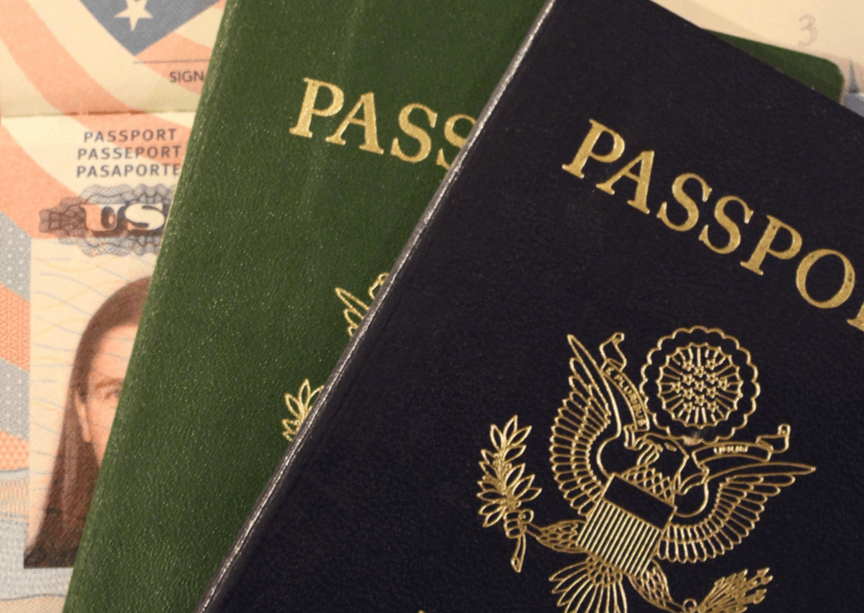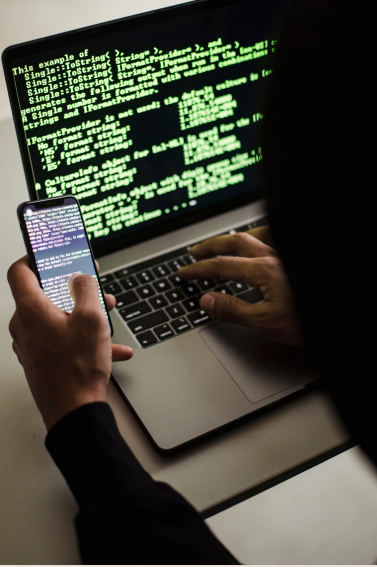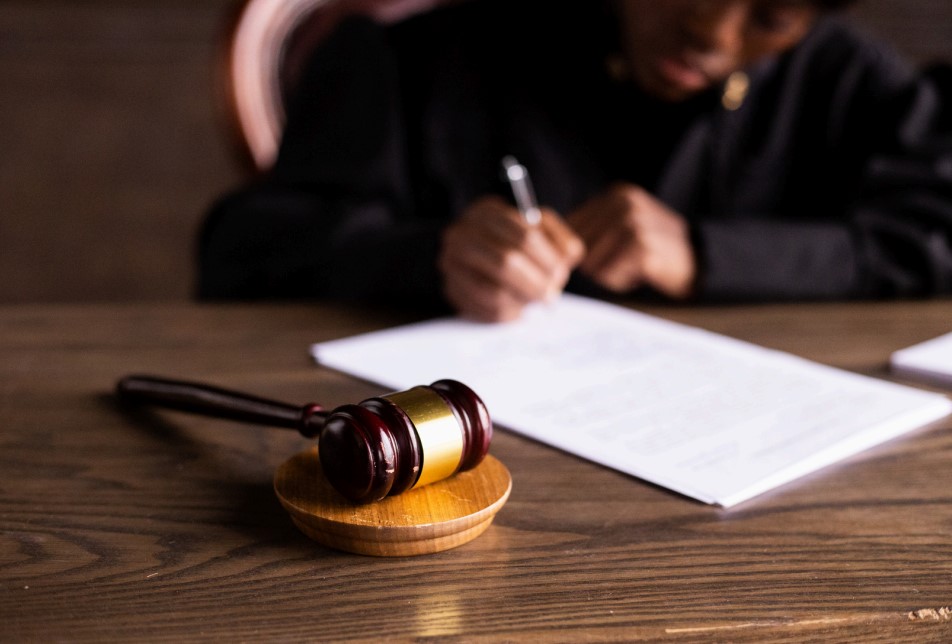
Illegal dismissal of employees
It is established that discipline of employees is part of management prerogative. But when the disciplinary action amounts to dismissal or termination of an employee, the Labor Code provides stringent rules that must be complied with. Otherwise, the termination of the employee is considered illegal.
To start, the dismissal must comply with Substantive Due Process, which means that the dismissal of an employee must be for a just cause or authorize cause. Thus, the employer cannot just dismiss an employee out of whim.
The following are the Just Causes under the Labor Code:
-
Serious misconduct or willful disobedience by the employee of the lawful orders of his employer or representative in connection with his work;
In willful disobedience, the following requisites must concur:
- The employee’s assailed conduct must have been willful or intentional, the willfulness being characterized by a “wrongful and perverse attitude; and
- The order violated must have been reasonable, lawful, made known to the employee and must pertain to the duties which he/she had been engaged to discharge.
- Gross and habitual neglect by the employee of his duties. Mere neglect is not sufficient. The neglect must be both gross and habitual.
- Fraud or willful breach by the employee of the trust reposed in him by his employer or duly authorized representative. For loss of confidence as a ground for dismissal, the employee concerned must be holding a position of trust and confidence.
- Commission of a crime or offense by the employee against the person of his employer or any immediate member of his family or his duly authorized representative.
- Other causes analogous to the foregoing.
On the other hand, misconduct must be serious for it to be a just cause for termination. Some examples of serious misconduct as a just cause for termination are falsification of time records and immorality.
The following are the Authorized Causes under the Labor Code:
-
Closure of establishment and reduction of personnel
These are labor saving devices, redundancy, retrenchment to prevent losses, closing or cessation of the establishment. If the termination is based on this ground, the employer must serve a written notice to the employees and to the Department of Labor and Employment at least thirty (30) days prior to the intended date of termination.
-
Disease of the employee
The employee must be found to be suffering from any disease and whose continued employment is prohibited by law or is prejudicial to his/her health, as well as the health of his or her fellow employees.
It is not enough that the dismissal is based on a Just Cause or Authorized Cause, Procedural Due Process must also be observed.
The following is the procedure that must be complied with in terminating the services of an employee based on just causes:
- Written Notice must be served on the employee specifying the ground(s) for termination and giving his reasonable opportunity within which to explain his/her side;
- Hearing or conference shall be conducted wherein the employee is given an opportunity to respond to the charge and to present his/her evidence. The employee may be assisted by his/her counsel, if so desires.
- Written notice of termination must be served on the employee indicating that upon due consideration of all the circumstances, grounds have been established to warrant his/her termination.
Entitlement to Separation Pay
It must be pointed out that when an employee is dismissed based on a just cause with compliance with the Procedural Due Process, the dismissed employee is not entitled to the payment of Separation Pay.
The following are the instances when an employee is entitled to the payment of separation pay:
- Installation of labor-saving devices
- Redundancy
- Retrenchment
- Closure or cessation of business operations
- Disease of an employee and his continued employment is prejudicial to himself or his co-employees
- When an employee is illegally dismissed but reinstatement is no longer feasible
Reinstatement and Backwages
Full back wages is inclusive of the allowances and other benefits computed from the time the compensation is withheld from the employee, until the time of his/her reinstatement.
Also, the reinstatement must be to the employee’s former or equivalent position without loss of seniority rights and other privileges.
If reinstatement is no longer feasible, that is the time that the employer must pay separation pay in lieu of reinstatement.

Article 36 - Philippine Family Code
Psychological Incapacity as a ground for the nullifying void marriages is provided under Article 36 of the Family Code, to wit:
Article 36. A marriage contracted by any party who, at the time of the celebrating, was psychologically incapacitated to comply with the essential marital obligations of marriage, shall likewise be void even if such incapacity becomes manifest only after its solemnization.
In the case of Republic vs. Court of Appeals and Molina (G.R. No. 108763, February 13, 1997), the Supreme Court laid down the guidelines for interpreting and applying Article 36. The following are the Molina Guidelines:
- Burden of proof to show the nullity of marriage belongs to the plaintiff;
-
The root cause of the psychological incapacity must be:
- medically or clinically identified;
- alleged in the compliant;
- sufficiently proven by experts; and
- clearly explained in the decision.
- The incapacity must be proven to be existing at the time of the celebration of the marriage;
- Incapacity must be shown to be clinically or medically permanent or incurable;
- Such illness must be grave enough to bring about the disability of the party to assume the essential obligations of marriage;
- The essential marital obligations must be those embraced by Articles 68 up to 71 of the Family Code as regards the husband and wife as well as Articles 220, 221 and 225 of the Family Code;
- The interpretations given by the National Appellate Matrimonial Tribunal of the Catholic Church in the Philippines, while not controlling, shall be given great respects by the courts.
Since the promulgation of the Molina decision in 1997, only a few cases were found to have met the Guidelines laid down in Molina. Thus, in the case of Tan-Andal vs. Andal, the Supreme Court stated that “it is time for a comprehensive but nuanced interpretation of what truly constitutes psychological incapacity.”
Quantum of Proof
In the case of Molina, it is stated that the plaintiff has the burden of proving psychological incapacity, but is silent as to the quantum of proof required. In Andal, the Supreme Court ruled that “the plaintiff-spouse must prove his or her case with clear and convincing evidence.” The reason is that the presumption of marriage can only be rebutted by clear and convincing evidence.
Psychological Incapacity does not mean medical incapacity or equivalent to a personality disorder
In the case of Santos vs. Court of Appeals (G.R. No. 112019, January 4, 1995), the Supreme Court interpreted psychological incapacity as a mental incapacity, and was confined to “the most serious cases of personality disorders clearly demonstrative of an utter insensitivity or inability to give meaning and significance to the marriage”. This interpretation paved the way to treating or identifying psychological incapacity as a mental incapacity and personality disorders.
However, records of the Code Committee shows that psychological incapacity is not intended to be synonymous or equal to a mental incapacity, or to personality disorders. Thus, psychologists and psychiatrists as expert witnesses have become a standard in nullity cases in order to identify the personality disorder of the incapacitated spouse.
In Andal, the Supreme Court categorically abandoned the Molina guideline which required the medical or clinical identification of the psychological incapacity or root cause, and that the same must be sufficiently proven by experts. The Supreme Court emphasized that the psychological incapacity is “neither a mental incapacity nor a personality disorder that must be proved through expert opinion”.
What must be proven is the “durable or enduring aspects of a person’s personality called “personality structure”, which manifests itself through clear acts of dysfunctionality that undermines the family. The spouse’s personality structure must make it impossible for him or her to understand and, more important, to comply with his or her essential marital obligations.”

Expert testimony is not required to prove these aspects of personality, and ordinary witnesses are sufficient as long as they have been present in the pre-married life of the spouses and can testify as to the behaviors that they have consistently observed from the incapacitated spouse.
Juridical antecedence is still required
That the psychological incapacity must be existent at the time of the marriage. This means that juridical antecedence is still required as it is specifically mandated under Article 36. The juridical antecedence may be proven by testimonial evidence on the spouse’s past experiences that led them to their psychological incapacity.
Psychological incapacity must be incurable, but in the legal sense
In Andal, the Supreme Court amended the third Molina guideline by saying that while psychological incapacity must be incurable, the incurability must be in the legal sense, and not in the medical sense. Incurability in the legal sense means that the “incapacity must be so enduring and persistent with respect to the specific partner, and contemplates a situation where the couple’s respective personality structures are so incompatible and antagonistic that the only result of the union would be the inevitable and irreparable breakdown of the marriage.”
Gravity
The requirement that the psychological incapacity must be grave is retained, which must be shown that it is caused by a genuinely serious cause. The Supreme Court clarified, though, that gravity is not in the sense that the psychological incapacity must be shown to be a serious or dangerous illness.
Essential Marital Obligations
In Andal, the Supreme Court ruled that the essential marital obligations are limited to those between the spouses. However, once the spouses have children, their obligations to their children are also a part of their spousal obligations to each other Furthermore, the Supreme Court clarified that not all kinds of failure to meet the obligations to their children will nullify the marriage, but only those that are shown to be of “grievous nature that it reflects on the capacity of one of the spouses for marriage”.

The Supreme Court summarized the amendment, as follows:
“To summarize, psychological incapacity consists of clear acts of dysfunctionality that show a lack of understanding and concomitant compliance with one’s essential marital obligations due to psychic causes. It is not a medical illness that has to be medically or clinically identified; hence, expert opinion is not required.
As an explicit requirement of the law, the psychological incapacity must be shown to have been existing at the time of the celebration of the marriage, and is caused by a durable aspect one’s personality structure, one that was formed before the parties married. Furthermore, it must be shown caused by a genuinely serios psychic cause. To prove psychological incapacity, a party must present clear and convincing evidence of its existence.”


Welcoming One Person Corp.
We have all heard about sole proprietorships. Most small business are under a sole proprietorship setup too. It’s quick, easy, and hassle-free. But with the amendment of the Corporation Code, comes now the One Person Corporation (OPC). Is there a difference between the two?
Before, there were only three business forms—sole proprietorship, partnership, and corporation. However, in 2019, RA 11232 was signed into law, revising the 38-year-old Corporation Code, to improve the ease of doing business in the country. One of the new provisions under RA 11232 concerns OPC.
Essentially, a sole proprietorship is a form of business organization with only one proprietary owner; a single individual who conducts business under his own name or an assumed trade name. The single proprietor is personally liable, and at the same time, he personally owns all the assets of the business.
On the other hand, an OPC has a legal personality that is separate and distinct from the sole stockholder of the corporation. The OPC, despite what the term “One Person” suggests, does not violate the concept of separate and distinct personality of corporations. If such is alleged, the burden is on the person to prove that the OPC is financially equipped and sustainable. The assets of the OPC are not owned by its sole stockholder, unless the OPC is not adequately financed. Likewise, the obligations of the corporation cannot be enforced against its sole stockholder, unless the situation would warrant the piercing of the veil of corporate fiction.
Under the Revised Corporation Code, a shareholder can now purchase all the shares of an existing corporation. Subsequently, he may apply for “conversion” and establish the OPC. Moreover, the OPC does not need to change its registration or disturb continuity of its life. It can convert and subsequently receive investors or admit strategic partners. All the OPC needs to do is to amend its Articles of Incorporation (AOI) and to follow the required governance for a regular corporation.
There is also no minimum paid-up capital required when it comes to an OPC, unlike in regular corporations. The OPC only needs to declare its proposed authorized capital stock, subscribed and paid-up, unless special laws or other rules would require it to do so, based on its intended operations.
It should be kept in mind that, in an OPC, it is required to appoint a nominee and an alternate nominee. The nominee will temporarily take the place of the one person until the interest of the one person is transferred to his lawful heirs, in case he dies abruptly.
For more information, you may visit the website of the Securities and Exchange Commission at www.sec.gov.ph.

Register a land in your name
Almost everyone dreams of investing and having their own property. Filipinos, more often than not, were raised to dream of being able to have their own, one day. This is dictated by our culture of hard work and making our family proud.
Acquiring properties in the Philippines may be easy if you know the process and if you have the required documents. This starts with the Deed of Sale between the buyer and the seller. The Deed of Absolute Sale contains the details of the buyer and seller (e.g., TIN), the price of the property, the technical description of the property, along with other provisions relating to the sale.
The Deed of Absolute Sale evidences the transaction between the buyer and seller. Before or upon signing the Deed of Absolute Sale, the seller should also provide the buyer his Owner’s Duplicate Copy of the Transfer Certificate of Title (TCT), as well as the certified true copies of the latest Tax Declaration. If the property sold is a vacant lot or no improvements have been made on it, a sworn declaration of no improvement must be executed. A Certificate of No Improvement may also be requested from the City or Municipal Assessor. To the best interest of the buyer and to confirm the legitimacy of the sale, he must also visit the subject property before proceeding with the sale.
Having the Deed of Absolute Sale does not automatically transfer the title of the subject property to the buyer. The buyer must now proceed to the Bureau of Internal Revenue (BIR), which will assess the taxes, such as the Capital Gains Tax (CGT) and Documentary Stamp Tax (DST). Such taxes must be paid.
The buyer must return to the BIR to claim his Certificate Authorizing Registration (CAR/eCAR), which will be released with the following documents: a) Original copy of the Deed of Absolute Sale, with the stamp of the BIR; b) Owner’s duplicate copy of the TCT/CCT; c) Original copies of the BIR forms stamped by the BIR; d) Copies of the Tax Declaration.
The buyer must pay the transfer taxes and secure the tax clearance at the local treasurer’s office. Subsequently, he shall file the pertinent documents with the Registry of Deeds for the issuance of a new land title. The new owner’s duplicate copy of the TCT and CCT will be released once the buyer has presented his documents such as the Deed of Absolute Sale, CAR, Tax Clearance, current Tax Declaration, and official receipts of payments of CGT, DST, Tax Clearance Certificate, and Transfer Fee.
He must then file the same documents with the Municipal or Provincial Assessor’s Office for the issuance of a new Tax Declaration. It must be emphasized that the buyer must first go to the Registry of Deeds for the acquisition of a new land title before he proceeds to the Municipal or Provincial Assessor’s Office, because the name on the land title must coincide with the name indicated on the Tax Declaration.
At present, the Land Registration Authority (LRA) has been implementing the Voluntary Title Standardization Program, which provides title owners to upgrade manually-issued titles to “eTitles”, issued by the LRA’s new Computerized System.

Management Prerogative
Since time immemorial, it has been clear that the labor sector has a constitutionally guaranteed right, pursuant to Sec. 3 of the 1987 Constitution. It provides for full protection to labor, local and overseas, organized and unorganized, and promotes full employment and equality of employment opportunities for all. It also guarantees the right of the workers to certain activities such as self-organization and collective bargaining, as well as the right to strike. These rights are enjoyed by the labor sector, and, in the same vein, the law favors workers too.
However, does this mean that the employer or the management does not have rights and cannot do anything at all?
The answer is no. An employer, in certain instances and within the bounds of law, may exercise its management prerogative in its employee relations.
The Supreme Court held in St. Luke’s Medical Center, Inc. v. Maria Theresa V. Sanchez (G.R. No. 212054, 11 March 2015), that management prerogative is the right of an employer to regulate all aspects of employment. It gives the employers the freedom to regulate, according to their discretion and best judgment, all aspects of employment, including work assignment, working methods, processes to be followed, working regulations, transfer of employees, work supervision, lay-off of workers and the discipline, dismissal, and recall of workers.
In this light, courts often decline to interfere in legitimate business decisions of employers. In fact, labor laws discourage interference in employers’ judgment concerning the conduct of their businesses.
Among the employer’s management prerogatives is the right to prescribe reasonable rules and regulations necessary or proper for the conduct of its business or concern, to provide certain disciplinary measures to implement said rules and to assure that the same would be complied with. At the same time, the employee has the corollary duty to obey all reasonable rules, orders, and instructions of the employer; and willful or intentional disobedience thereto, as a general rule, justifies termination of the contract of service and the dismissal of the employee.
While the law favors the labor sector, this does not necessarily mean that employers are precluded from managing their businesses, including employees, as they see fit. So long as the exercise of management prerogative does not violate employee’s rights and other prevailing laws, the employer shall not be liable for his acts that are intended to maintain his company.
The employer-employee relationship is one that is of a complex nature and requires both parties to coexist harmoniously. Ultimately, they mutually benefit from such relationship. If disrupted and a case is filed by the employee against the employer, it could take a while before the case gets resolved. As such, to avoid litigation, both parties must observe their obligations to each other and must comply with what is provided under the law.


Expats applying for a working visa
The Philippines has been in the top 10 best tourist destinations for quite some time now, due to its pristine beaches, history, and people. The country has attracted foreigners over and over, and some of them have even decided to stay for work. Just like any other country, the Philippines has its own specific requirements and guidelines for foreigners who intend to stay for work. These foreigners are often tagged as “expats”, which means a person who lives outside their native country.
Visa application, anywhere in the world, requires a lot of documents. Sometimes, even if it is just for tourism purposes, numerous documents are required by countries and the applicant undergoes strict scrutiny before a visa is approved or granted.
Visas in the Philippines are divided into three main categories: a) Immigrant Visa; b) Non-immigrant Visa; and c) Special Visa. If a foreigner intends to work in the Philippines, he would fall under the second category, Non-immigrant Visa, specifically the Pre-arranged Employee Visa (PAEV). PAEV is also more commonly known as the 9G.
Foreign nationals who intend to engage in any lawful application, whether for wages or salary or other form of compensation should apply for a PAEV. The foreigner must proceed to the Bureau of Immigration (BI) to apply for one. He may also apply with other immigration offices in the country, and not necessarily with the BI’s main office in Manila.

Some of the documents that need to be submitted are the following:
- Joint letter request addressed to the Commissioner from the applicant and the petitioner
- Duly accomplished CGAF for Non-immigrant Visa
- Photocopy of passport bio-page and latest admission with valid authorized stay
- Photocopy of Employment Contract, Secretary’s Certificate of Election, Appointment or Assignment of applicant, or equivalent document, with details of exact compensation, duration of employment and comprehensive description of the nature and scope of the applicant’s position in the company
- Photocopy of Alien Employment Permit (AEP) issued by the DOLE, and actual publication of the applicant’s approved AEP or in the absence thereof, a Certificate of Publication issued by the Publisher
The foreign national must also submit his application form, and if he has children, he will also need to provide additional information in relation to them.
He must secure the CGAF from the Public Information and Assistance Unit (PIAU) at the Bureau of Immigration or obtain it from the Bureau’s website. Afterwards, he must submit the required documents for pre-screening at the Central Receiving Unit (CRU) of the Bureau. If he intends to submit his documents to other BI offices instead, he may hand it over to the frontline officer of that office.
The foreign national shall also pay the required fees and submit a copy of the official receipt. Fees for visa application ranges from Ten Thousand Pesos (Php10,000.00) to Thirty Thousand Pesos (Php30,000.00). Subsequently, he must attend the scheduled hearing. His fingerprint will then be captured for record at the Alien Registration Division, wherein he should also submit the requirements for ACR I-Card application.
He may check the website of the Bureau to monitor whether his visa application is already approved or call the Bureau’s hotline for follow-up. If the visa application is approved, his passport must be forwarded to the Bureau for visa implementation. Likewise, if his ACR I-Card is approved, he may already claim the same.
For more information, you may visit the website of the Bureau of Immigration at https://immigration.gov.ph/visa- requirements/non-immigrant-visa/pre- arranged-employment-visa.

Knowing more about Data Privacy
In this day and age, the use of technology has been utilized beyond our wildest imagination. We may or may not have foreseen that the internet will be as beneficial as it is now, but it seems that it has found a way to be an essential part of our lives. When Covid- 19 hit the globe, more and more people have also started to make use of the internet, such as to help their businesses—unfortunately, at times, some people also use the internet to take advantage of people’s rights.
Some internet platforms would require a person’s basic information. Usually, this will include a person’s full name, address, contact details, and at times, even photos. While there is a privacy agreement that comes with these forms, no one bothers to read it because of its length. Worse, there are times when these information gets leaked, and in that instance, one should at least have a basic grasp of how he can take caution and protect himself from people with ill intent.

Republic Act No. 10173, more commonly known as the Data Privacy Act of 2012, aims to protect all forms of information, whether private, personal, and even sensitive ones. It covers not just natural persons but also juridical ones, who are involved in the processing of personal information. When we speak of “processing”, this means that the personal information is collected, recorded, stored, or used for some other purpose.
While Data Privacy Act of 2012 seeks to protect all forms of information, there are a number of instances where it cannot be applied, such as but not limited to the following:
- Personal information processed for journalistic, artistic, literary or research purposes;
- Personal information originally collected from residents of foreign jurisdictions in accordance with the laws of those foreign jurisdictions, including any applicable data privacy laws, which is being processed in the Philippines;
- Information necessary for banks and other financial institutions under the jurisdiction of the independent, central monetary authority or Bangko Sentral ng Pilipinas to comply with RA 9510 and RA 9160, as amended, otherwise known as the Anti- Money Laundering Act and other applicable laws.
A person filling out a form, whether online or in actual, can only do so much. Companies and organizations must also know their obligations under the law.
Under the Implementing Rules and Regulations of the Data Privacy Act of 2012, all organizations are required to appoint a Data Protection Officer (DPO). The DPO shall be knowledgeable when it comes to data privacy and protection, and he must ensure that the organization or the company is always in compliance with data protection laws.
If and when you feel like your right to data privacy has been violated, whether your personal information has been leaked, or has been misused, or even improperly disposed, you may file a complaint with the National Privacy Commission (NPC). If the NPC finds merit in your complaint, the case will then be forwarded to its Enforcement Division of the Legal and Enforcement Office, for the enforcement of civil damages and fines. Other administrative sanctions may also be upheld, when deemed appropriate.
The NPC may also decide whether the case should proceed to criminal litigation. If it does, it shall forward the case records to the Department of Justice (DOJ) and recommend the prosecution of the case.
Ultimately, whether we are using the internet to provide our personal information or giving it manually, we shall always be careful and cautious with the information we share, and to whom we share them with.

All about Estate Tax
When our loved ones die, we go into a deep grief. Most of the time, we are at a loss for words. Whether the person has properties left behind, safe to say, succession and inheritance are the least of our worries. However, in some instances, we simply cannot keep on avoiding the paperwork that comes with a loved one’s passing. This includes probate of a will, if there is any, and payment of estate taxes.
What is estate tax?
Estate tax is a tax levied, assessed, collected and paid upon the transfer of the net estate of every decedent, whether resident or nonresident of the Philippines, to the heirs, based on the value of such net estate, by including the value at the time of his death of all property, real or personal, tangible or intangible, wherever situated.
However, in the case of a nonresident decedent, who at the time of his death was not a citizen of the Philippines, only that part of the estate which is situated in the Philippines shall be included in his taxable estate, as computed in accordance with the estate tax rate imposed under Sec. 84 of the NIRC of 1997, as amended.
In essence, estate tax is a type of excise or privilege tax, because it aims to tax a privilege—that is, of shifting the economic benefits and enjoyment of property from the dead to the living. It is not a tax against the property of a decedent, nor is it a claim against the estate. It is simply the tax on the right to succeed to, receive, or take property by either testamentary or intestate succession. It must be remembered that the right to succeed is likewise not a natural right, but one that is provided by the statute. It is, just like estate tax, a privilege.


Estate tax accrues on the date of the death of a person. However, accrual of the tax is distinct from the obligation to pay the same. Upon the death of the person, succession instantly takes place and the right of the State to tax the privilege to transmit the estate vests instantly as well, upon his death.
What are the items included in determining the Gross Estate of a decedent?
Under prevailing law, the items to be included are the following:
- decedent’s interest
- transfer in contemplation of death
- revocable transfer
- property under a general power of appointment
- proceeds of life insurance
- prior interests
- transfer for insufficient consideration
- claims against insolvent persons
- unpaid mortgages
- family home
Are there exclusions from the Gross Estate?
Yes. Some of these include but are not limited to the following:
- GSIS and SSS benefits, accruing by reason of death;
- amounts received by veterans from the PH and US government, from the damages suffered during WWII;
- property outside the Philippines of a nonresident alien;
- capital or exclusive property of the surviving spouse.

Filing and Payment of Estate Tax
Previously, it was required to file a Notice of Death. However, this was already repealed and is no longer required at present. Estate tax is required to be filed in all cases of transfers, subject to estate tax. It is also required regardless of the gross value of the estate, where the said estate consists of registered or registrable property. This includes real property, motor vehicle, shares of stock, or other similar property for which a clearance (eCAR) from the BOR is required as a condition precedent for the transfer of ownership thereof, in the name of the transferee, the executor, or the administrator, or any of the legal heirs of the decedent, as the case may be.
It should be noted that TRAIN Law has deleted the clause “or where though exempt from tax, the gross value of the estate exceeds Php200,000.”
The executor, or the administrator, or any of the legal heirs of the decedent must file the estate tax return. If there are none, any person in actual or constructive possession of any property of the decedent may file the estate tax return, pursuant to Sec. 90(A) of the Tax Code.
Effective January 1, 2018, the estate tax rate is set at 6%, based on the fair market value of the taxable net estate at the time of death of the decedent. In May 2021, the House committee on ways and means has recommended that the chamber House approve the Senate’s amendments to House Bill 7068, which would extend the estate tax amnesty application period by two years, or until June 14, 2023.

What is E-commerce?
Online selling has been a thing for few years now. Most businesses have opted to sell their products on the internet to be able to have a wider reach in the market. Since almost everyone has access to the internet these days, it is easier and quicker to cater to consumers, whether for goods or services.
Products being sold on the internet range from household items to even electronic gadgets. Almost everything you need can now be ordered and bought with the help of the internet. Services are also advertised now with the use of social media, and bookings or appointments may also be made through it.
With the happening of Covid-19 and the closure as well as limited hours of establishments, businesses have truly taken advantage of the internet. Considering that certain protocols must be observed as well due to the pandemic, it is only wise to take the business to a different “level”.

In the Philippines, Electronic Commerce Act of 2000 (more popularly known as E-commerce Act) has been in place since 2000. It aims to facilitate domestic and international dealings, transactions, arrangements, and the like, through the use of electronic medium. Under the law, E-commerce Act applies to any kind of data message and electronic document used in the context of commercial and non-commercial activities to include domestic and international dealings, transactions, arrangements, agreements, contracts and exchanges and storage of information.
Some of E-commerce Act’s salient features are the following:
- Empowers the Department of Trade and Industry (DTI) to supervise the development of e-commerce in the country. It can also come up with policies and regulations, when needed, to facilitate the growth of e-commerce.
- All existing laws such as the Consumer Act of the Philippines also applies to e-commerce transactions.
- It gives legal recognition of electronic data messages, electronic documents, and electronic signatures.
- Allows the formation of contracts in electronic form.
- Makes banking transactions done through ATM switching networks absolute once consummated.
Under the law, certain acts shall be penalized by fine and/or imprisonment, such as: a) hacking or crackling; b) piracy; c) violations of Consumer Act (RA 7394); and d) other violations of the provisions of the Act.
At present, again, due to the pandemic, most government offices have also resorted to the use of the internet. Pre-Covid, some of these government agencies, such as the SEC, have already started using the internet for certain transactions. Courts and quasi-judicial agencies have also likewise started the implementation of e-filings, to prevent the spread of the virus.
In 2020, DTI has expressed its support for various bills related to e-commerce, such as House Bill 6122 or the Internet Transactions Act. The Bill seeks to establish an e-commerce bureau, which shall focus on promoting the development of e-commerce in the country, as well as establishing trust between sellers and consumers. The Bill also seeks to lay down ground rules for online consumer protection and safer e-payment gateways.

Anti-Violence Against Women and Their Children
Republic Act (RA) No. 9262 or the AntiViolence Against Women and Their Children Act of 2004 allows women and children to enjoy the protection that the law has granted to them from the violence perpetrated by women's intimate partner, i.e., husband; former husband; or any person who has or had sexual or dating relationship with the woman, or with whom the woman has a common child.
The law seeks to define and criminalize acts of violence against:
- Woman who is the wife or former wife;
- Woman with whom the person has or had a sexual or dating relationship;
- Women with whom the person has acommon child;
- Child whether legitimate or illegitimate within or without the family abode.
From the wording of the statute, it can be perceived who may be the offender and offended party. Nonetheless, the Supreme Court was faced with an issue as to whether a father may apply for protection and custody orders under RA No. 9262 on behalf of his minor child against the mother who is alleged to have committed violence against their child.
It must be noted that prior to the case of Knutson vs. Sarmiento-Flores (G.R. No. 239215, July 12, 2022), the case of Ocampo v. Arcaya-Chua (A.M. OCA IPI No. 07-2630- RTJ,April 23, 2010) identified persons who are classified as offender and offended parties. Under RA No. 9262, offender refers to any person who is the husband, former husband, those who had sexual or dating relationship with the woman or with whom she has a common child while offended party may be the wife, former wife, a woman who has or had sexual or dating relationship, or with whom the man has a common child or her child. From the foregoing, it was concluded that the definition of an offender does not include the child’s mother. Thus, a child’s mother cannot be considered as an offender under RA 9262.
However, in the landmark decision dated July 12, 2022, the Court’s En Banc, through Associate Justice Mario V. Lopez, upheld the right of a father under RA No. 9262 to apply for protection and custody orders against the mother who committed violence against their child. Emphasizing that the issuance of Temporary Protection Order (TPO) is principally and directly for the protection on behalf of the minor child and not the father.
Court records show that an American citizen Randy Michael Knutson filed, on behalf of minor Rhuby Sibal Knutson, a petition under RA 9262 for the issuance of Temporary and Permanent Protection Orders against Rosalina Sibal Knutson before the Regional Trial Court of Taguig City, Branch 69 (RTC) alleging that the mother placed their daughter to an environment harmful to the daughter’s physical, emotional, moral, and psychological development.
The lower court dismissed the petition citing the ruling in Ocampo vs. Araya-Chua that a protection order cannot be issued in favor of a husband against his wife. It further said that the remedies under RA No. 9262 such as the issuance of a Temporary/Permanent Protection Order are not available to the father because he is not a “woman victim of violence”. A Motion for Reconsideration was filed by petitioner Randy but it was denied by the RTC reiterating that RA No. 9262 does not apply to situations where the mother committed violence against her own child.
The Supreme Court held that RA No. 9262 covers a situation where the mother committed violent and abusive acts against her own child. The Court emphasized that the statute used the gender-neutral word “person” as the offender which embraces any person of either sex, thus, it does not single out the husband or father as the culprit.
The Court further held that Section 9(b) of RA 9262 explicitly allows “parents or guardians of the offended party” to file a petition for protection orders. Here, the statute used “parents” which pertains to the father and the mother of the woman or child. In the instant case, the offended party is Rhuby, a minor child, who experienced violence and abuse. Randy merely assists Rhuby in filing the petition as the parent of the offended party. Likewise, Randy is not asking for a protection order to be issued in his favor but rather on behalf of their minor daughter Rhuby. The Court highlighted that the best interest of the child should be the primordial and paramount concern.
“Obviously, the RTC's restrictive interpretation requiring that the mother and her child to be victims of violence before they may be entitled to the remedies of protection and custody orders will frustrate the policy of the law to afford special attention to women and children as usual victims of violence and abuse. The approach will weaken the law and remove from its coverage instances where the mother herself is the abuser of her child. The cramping stance negates not only the plain letters of the law and the clear legislative intent as to who may be offenders but also downgrades the country's avowed international commitment to eliminate all forms of violence against children including those perpetrated by their parents” the Court said, highlighting the discriminatory interpretation of the RTC in denying the petition.

CLERICAL ERROR LAW (R.A. NO.9048, AS AMENDED BY RA 10172)
Remedial Law; Special Proceedings; RA 9048; RA10172
MARYROSE A. RIOS
ANY PERSON WHO HAS A DIRECT AND PERSONAL INTEREST IN THE CORRECTION OF A CLERICAL OR TYPOGRAPHICAL ERROR OR MISTAKE IN CIVIL REGISTER

where it is patently clear that there is a clerical or typographical mistake in the entry and wishes to:
- Change his or her first name;
- Correct clerical or typographical errors in the civil register;
- Change/correct the day and/or month of his or her date of birth; or
- Change/correct his or her sex
He or she must file a verified petition with the local civil registry office of the city or municipality where the record being sought to be corrected or changed is kept (Sec. 3, RA 9048)
Because of the enactment of RA 9048, the remedy and the proceedings for change of first name now dispensed with the need for judicial proceedings. Thus, a person may now change his or her first name or correct clerical errors in his/her name through administrative proceedings and the jurisdiction over applications for the same is now lodged to the administrative officers.
Under Section 2 of RA No. 9048, the law defined clerical or typographical error as a mistake committed in the performance of clerical work in writing, copying, transcribing or typing an entry in the
in the civil register that is harmless and innocuous, such as misspelled name or misspelled place of birth or the like, which is visible to the eyes or obvious to the understanding, and can be corrected or changed only by reference to other existing record or records.
However, corrections involving change of nationality, age, status or sex of the applicant are not allowed under this law. Hence, the remedy of the applicant is to file a petition for cancellation or correction of entries under Rule 108.
In the case of Bartolome vs. Republic (G.R. No. 243288. August 28, 2019), the Supreme Court discussed a test to determine whether a correction is clerical or substantial cancellations or corrections under Rule 108 of the Rules of Court. The court held that misspelled names or missing entries are clerical corrections if the following are present:
- They are visible to the eyes or obvious to the understanding and
- They may be readily verified by referring to the existing records in the civil register.
- It does not involve any change in nationality, age or status.
In Republic vs. Gallo (G.R. No. 207074. January 17, 2018), the Court unequivocally held that a prayer to enter a person's middle name is a mere clerical error, which may be corrected by referring to existing records. Thus, it is primarily administrative in nature and should be filed pursuant to R.A. 9048 as amended.
Grounds for Change of First Name or Nickname
RA No. 9048 expressly enumerated the grounds for change of first name or nickname, to wit: The petitioner finds the first name or nickname to be ridiculous, tainted with dishonor or extremely difficult to write or pronounce. The new first name or nickname has been habitually and continuously used by the petitioner and he has been publicly known by that by that first name or nickname in the community: or The change will avoid confusion. (Sec. 4, RA 9048)
When the Court was faced with the question as to whether change/correction sought in the petitioner's first name, as appearing in his birth certificate, from “Feliciano” to “Ruben” be filed under RA 9048, Rule 103 or Rule 108 of the Rules of Court, the Court ruled that since the petitioner seeks to change his first name on the ground that he has been using the name “Ruben” since childhood, the change that the petitioner sought is covered by RA 9048 and should have been filed with the local civil registry of the city or municipality where the record being sought to be corrected or changed is kept. (Bartolome vs. Republic).

IDENTITY THEFT IN THE PHILIPPINES
DANJEN JINAYON
Introduction
The emergence of the Digital Age has
paved the way for a more
comprehensive implementation of
technology in everyday life, from
payment methods to identification
cards to shopping and even banking,
to name a few. Despite its aim of a
better and easier life, technology
usage has also increased its user's
vulnerability. Identity theft is one of
the most common and awful kinds of
cyber crimes. It involves the
unauthorized use or acquisition of
one's personal information for
fraudulent activities.
Identity theft victims can suffer financial losses, damage to their reputations, and even emotional distress. The Philippines recognizes the risks that this crime can pose to the victims, which has led to the implementation of two laws that aim to govern Filipinos against the threat of Identity Theft, namely, the Cybercrime Prevention Act of 2012 and the Data Privacy Act of 2012.

Legal Framework
Under the Republic Act No. 10175, also
known as the Cybercrime Prevention
Act of 2012, identity theft is the
intentional acquisition, possession,
alteration, use, misuse, or deletion of
identifying information belonging to
another person. Victims of identity
theft are advised to file a report to the
authorities and seek damages for their
losses. To do so, victims must file a
civil lawsuit against the perpetrator.
Penalties can vary from a fine of two
hundred thousand (200,000) to
imprisonment

On the other hand, under the Data Privacy Act of 2012 (R.A. 10173), individuals found guilty of unlawful possession and processing of personal information can be fined a minimum of five hundred thousand (500,000) and a maximum of seven years (7) in prison.
Actions To Protect Yourself
Understanding Identity theft is a way to prevent yourself from being a victim. To address
this growing problem, here are some ways you could do to protect yourself:
1.Be careful when giving out your personal information to different social platforms.
Websites, emails, as well as chat and community groups, are just one of the many
platforms where identity theft perpetrators lure their victims. They may pretend to be
someone else, send clickbait, and even provide sob stories to get you.
2. Read and understand privacy statements. Before you can access websites or
applications, these pop-ups inform you how they collect and store your data. Make sure
that you agree to their terms before you accept it.
3. Allow two-factor authentication. 2FA is a security system that will require you to have
two separate and distinct forms of identification to access your account. Generally, the
first factor will be your password, whereas the second factor may include biometrics,
one-time pin (OTP), face identification, and even retina.
4. Use a strong password, and always keep your password up to date. Remember that
the more complex your password is, the more it'll make it difficult for perpetrators to
access your information.
5. Do not open unreputable websites when making a purchase. There are a variety of
potential threats to accessing unsecure websites, including stealing sensitive information,
redirecting to malicious sites, altering data, and cyber attacks.
Conclusion
In conclusion, identity theft significantly threatens individuals, institutions, and the overall
security landscape. In exchange for the ease of the digital age, technological
advancement has also made it easier to exploit vulnerabilities. Preventative measures,
such as stringent data protection laws, increased cybersecurity measures, and public
awareness campaigns, are crucial in combating this pervasive issue

PERSON/S LIABLE FOR CYBER LIBEL
Atty. Maryrose A. Rios
Criminal Law; Libel; Cyberlibel; Internet; Social Media
With the growing number of social media users,social media became one of the primary tools of communication in the Philippines.In the Philippines,as of January 2023, there are 84.45 million social media users or 72.5 percent of the total population, 116.5million to be exact.
However, when people started to fully take advantage of this tool, it has, at the same time, paved the way to new forms of criminal activities which exposes people to criminal liabilities. Cyber libel is among the common criminal acts that people commit.
In this article, we will determine when social media users will be held liable for the crime of cyber libel. If a person posted, commented, shared, or liked a libelous post on social media, will they be held liable under this law?
To start, cyber libel in the Philippines is governed by the Republic Act No. 10175 or the Cybercrime Prevention Act of 2012. Although the said law does not really provide a definition of cyber libel, it penalizes libel, as defined under the Revised Penal Code (RPC), but imposes one (1) degree higher than that provided for by the RPC because of the use of information and communication technologies (Section 6, RA 10175).


Definition of Libel
Under Article 353 of the RPC, the
Code define libel as follow:
Art. 353. Definition of libel. — A
libel is public and malicious
imputation of a crime, or of a vice
or defect, real or imaginary, or
any act, omission, condition,
status, or circumstance tending
to cause the dishonor, discredit,
or contempt of a natural or
juridical person, or to blacken the
memory of one who is dead.
How Libel is Committed
A libel is committed by means of any of the following:
- Writing
- Printing
- Lithography
- Engraving
- Radio
- Photograph
- Painting
- Theatrical Exhibition
- Cinematographic Exhibition or any similar means(Art. 355, RPC)
How Cyberlibel is Committed
The RA 10175 provisions on libel read:
The unlawful or prohibited acts of libel as defined in Article 355 of the Revised Penal Code, as amended,
committed through a computer system or any other similar means which may be devised in the future. (Sec.
4(c)(4), RA 10175)

Elements of Cyberlibel
The following are the elements of cyber libel based on Section
4(c)(4) of R.A. 10175, in relation to Articles 353 and 355 of the
Revised Penal Code:
- There must be an imputation of a crime, or of a vice or defect, real or imaginary or any act, omission, condition, status, or circumstance;
- It must be done or made publicly
- There must be an existence of malice The identity of the person defamed whether natural or juridical person or one who is already dead;
- The imputation must tend to cause the dishonor, discredit, or contempt to the person defamed;
- The imputation must be done through the use of a computer system or any other similar means which may be devised in the future.
Original Author
RA 10175 establishesthat the Original Author of the Post isliable to any defamatory statements posted online.
Definition of Original Author
It refers to the person who created or is the origin of the assailed electronic statement or post using a computer
system (Sec. 3[dd], Rule 1, in relation to Sec. 5 [3], Rule 4, Implementing Rules and Regulations of Cybercrime
Prevention Act)
Section 5[3], Rule 4. “xxx Provided, That this provision applies only to the original author of the post or online
libel, and not to others who simply receive the post and react to it.”
Liker/Sharer
In the case of Disini vs. Secretary of Justice, et al (G.R. No. 203335, February 11, 2014), the Supreme Court has
provided illustration to answer the question as to whether “Online Postings”, “Liking”, “Commenting” or
“Sharing” openly defamatory statements are punishable under the law.
For instance, XXX posted on Facebook that “YYY is a thief”. AAA commented that “I like this!; BBB commented
“Correct”; CCC liked the post and DDD shared the post of XXX. Discuss the liability of XXX, AAA, BBB and DDD
liability.
Based on the Disini Case, XXX is liable for the crime of cyber libel because he is the author of the post; AAA is not
liable because he is not the author of the post; CCC is not liable because he is merely expressing his agreement
with the statement on the post, thus, he is still not the author; and DDD is not likewise liable because once again
he is not the author.
“Except for the original author of the assailed statement, the rest (those who pressed Like, Comment and Share)
are essentially knee-jerk sentiments of readers who may think little or haphazardly of their response to the
original posting.”, the Supreme Court said.
From the letter of the law, persons who shared and liked a libelous post are not covered by RA 10175, thus, cannot
be held liable.
Commenter
However, a commenter to the original post who does not merely react to the original post but create or made a
new defamatory statement can be held liable for cyber libel because it is now considered as an original posting
published on the internet. (Disini vs. Secretary of Justice)
Both the Revised Penal Code and the Cybercrime Law clearly punish authors of defamatory publications. Thus,
think before you click.

INTELLECTUAL PROPERTY RIGHTS
DANJEN JINAYON
Intellectual property has become a legal and economic concern in the dynamic landscape of the
Philippines. Intellectual property protection has risen over time as the country progressed in creativity,
technology, and commerce. The Republic Act No. 8293, or the Intellectual Property Code of the
Philippines, is designed to grant intellectual property protection to scientists, inventors, artists, and
gifted individuals on their creations.
The IP Code highlights several aspects that are protected under the Philippine Law:
Copyright
The IP code gives creators or authors exclusive rights over their original works. Copyright protection
extends to authors, artists, and musicians from literary, artistic, and scientific creations. The code grants
rights such as reproduction, distribution, and public performance, allowing creators to control the use
and dissemination of their works. This protection covers the author's lifetime and 50 years after their
death.
Trademarks
Trademarks are vital for brand identity. In the world of commerce, distinctive signs, names, symbols, and
images are used to identify products and services. Under the IP Code, trademark protection can be
established by registration and application filed with the Intellectual Property office. Examination of the
trademark application will follow through, which may take up to seven months; however, if opposition
arises during the process, the application may take longer.
On the other hand, successful trademark registrants will be awarded ten years of trademark validity that
can be renewed after ten years. It is essential to note that maintenance requirements shall also be
complied with to avoid cancellation.

Geographic Indications
Geographic Indications are used to protect and identify products that originate from a specific area with a
certain quality or reputation attributable to its origin. Common products well-known for their GI are
Champagne, Parmesan Cheese, Scotch Whiskeys, and Swiss Watches. The Philippines has recently
progressed its GI protection system, acknowledging potential international GI products such as pili, basey
banig, yakan cloth, etc. The application for GI protection can also be acquired through registration at the
Intellectual Property Office. Along with the application, the registrant must submit a certification from
the government that validates the characteristics of the potential GI.
Industrial Design
This pertains to the visual appearance or aesthetic aspect of a product. Registrants must ensure the
product is unique, new in the market, and does not go against public order, health, or morals to be
eligible. In this sense, designs may vary from lines, patterns, shapes, and surfaces. All of which will
undergo examination. A five-year registration will be given to successful registrants; this can be renewed
for only two consecutive periods of five years.
Patents
Patent registration protects inventors against unauthorized appropriation of their product or process. To
acquire a patent on an invention, it must meet the IPO’s three conditions: it must be new, inventive, and
have industrial applicability. Once the patent is issued, the inventor will have the exclusive right to
choose who can be involved in the production or selling of the product. The patent term will be for twenty
years from the filing date. The patent owner may also sell the invention’s right; in this case, the new
owner will be the patent owner.
Layout Design of Integrated Circuits
Topographies of integrated circuits are commonly used in microchips or semiconductors to perform an
electronic function. The layout design can only be protected if it is proven to be owned by the creator and
is of original design during the time of creation. The term for IP protection is ten years and is not
renewable.
1.Undisclosed Information or Trade Secrets
Trade secrets are recognized as independent Intellectual Property. In this case, unlike patents, trade
secrets are confidential and are strictly between the parties involved. This can be protected through
contractual means such as NDAs or confidentiality agreements. Despite the absence of a specific law to
govern trade secrets, several Philippine laws cover breaches of confidential information. As such,

Undisclosed Information or Trade Secrets
Trade secrets are recognized as independent Intellectual Property. In this case, unlike patents, trade
secrets are confidential and are strictly between the parties involved. This can be protected through
contractual means such as NDAs or confidentiality agreements. Despite the absence of a specific law to
govern trade secrets, several Philippine laws cover breaches of confidential information. As such,
unauthorized disclosure or use of trade secrets or any confidential information protected by a contract
can be penalized

WHICH ONE TO FILE?
Petition for Disqualification vs. Petition to Deny Due Course to
or Cancel a Certificate of Candidacy?
ATTY. MARYROSE A. RIOS
Political Law; Election Law; Remedies
The B.P. Blg. 881 or otherwise known as “Omnibus Election Code of the Philippines”
(OEC) provides two (2) available remedies that may filed against bona fide candidates,
viz: (1) Petition for Disqualification and (2) Petition to Deny Due Course to or Cancel a
Certificate of Candidacy.
PETITION FOR DISQUALIFICATION
Grounds for Disqualification
Disqualification case under Sections 12 and 68 of Omnibus Election Code revolves
around on either:
- Candidate’s sanity or competence;
- Candidate’s possession of a permanent resident status in a foreign country; or
- Candidate’s commission of certain acts of disqualification.
Sanity or Competence Under Section 12 of Omnibus Election Code, any person may be disqualified from becoming a candidate and to hold any office, unless he or she has been given plenary pardon or granted amnesty, if he or she:
- has been declared by competent authority insane or incompetent; or
- has been sentenced by final judgment for subversion, insurrection, rebellion or for any offense for which he has been sentenced to a penalty of more than eighteen months or for a crime involving moral turpitude.
Possession of Permanent Resident Status
If the candidate is a permanent resident or an immigrant to a foreign country, he or she shall not be qualified to run for any elective office under OEC.
However, if the candidate waived his status as permanent resident or immigrant of a foreign country in accordance with the residence requirement provided for in the election laws, he or shall may run for an elective office.
Acts of Disqualification In the same provision, election offenses under the OEC which results to a candidate’s disqualification are as follow:
- Giving money or other material consideration to influence, induce or corrupt the voters or public officials performing electoral functions;
- Committing acts of terrorism to enhance one’s candidacy;
- Spending in one’s election campaign an amount in excess of that allowed by the OEC;
- Soliciting, receiving or making any contribution prohibited under Sections 89, 95, 96, 97 and 104 of the OEC; and
- Violating Sections 80, 83, 85, 86 and 261, paragraphs d, e, k, v, and cc, sub-paragraph 6 of the OEC
If a candidate is declared by final decision of the competent court guilty of, or found by the COMELEC of any of the foregoing acts abovementioned, he or she shall be disqualified from continuing as candidate for public office. If the person has already been elected, he or she shall be disallowed from holding the office. (Section 68 of B.P. Blg. 881)
PETITION TO DENY DUE COURSE TO OR CANCEL CERTIFICATE OF CANDIDACY
Grounds for Petition to Deny Due Course
Under Section 78 of the OEC, a denial of due course to and/or cancellation of a COC is premised on a person’s material misrepresentation of the contents of the certificate of candidacy found under Section 74 of OEC.
For instance, a person who violated the three-term limit is an ineligibility which affects the qualification of a candidate to elective office and the misrepresentation of the same is a ground for a petition to deny due course to or cancel a COC. (Aratea vs. COMELEC, G.R. No. 195229, October 9, 2012)
In the case of Loong vs. COMELEC (G.R. No. 93986, 22 December 1992), respondent Nur Hussein Ututalum filed a petition under Section 78 to disqualify petitioner Benjamin Loong for the office of Regional Vice-Governor of the Autonomous Government of Muslim Mindanao for false representation as to his age.
It must be emphasized that the misrepresentation must be material such as misrepresentation as to the candidate’s age, registration as a voter, residence and citizenship among others. Thus, the remedy under Section 78 cannot be invoked if it involves statements that do not refer to the qualifications of a candidate.
As to whether misrepresentation of profession or occupation on a certificate of candidacy punishable as an election offense under Section 262 in relation to Section 74 of B.P. 881, the Supreme Court ruled that in the negative. Profession or occupation not being a qualification for elective office, misrepresentation of such does not constitute a material misrepresentation. Certainly, in a situation where a candidate misrepresents his or her profession or occupation in the certificate of candidacy, the candidate may not be disqualified from running for office under Section 78 as his or her certificate of candidacy cannot be denied due course or canceled on such ground. (Lluz vs. COMELEC, G.R. No. 172840, June 7, 2007)
Conclusion
To determine which one of the two remedies a person may use, you must first consider the ground before filing the petition. For instance, if the action relates to the candidate’s ineligibility or lacking in quality for the elective position which was declared by a final decision of a competent court or as found by the Commission, you must file PETITION FOR DISQUALIFICATION. On the other hand, if your action is based on false representation of the candidate as to material information in his/her COC such as the candidate’s residency, age, citizenship or any other legal qualifications necessary to run for elective office, you must file PETITION TO DENY DUE COURSE TO OR CANCEL A COC.

EMPLOYER-EMPLOYEE RELATIONSHIP
by Atty. Maryrose A. Rios
Labor Law; Post-Employment; Test to
Determine Employer-Employee Relationship
It is established that the employment status of a person is defined and prescribed by law and not by what the parties decide it to be (Century Properties, Inc. vs. Concepcion, G.R. No. 220978, July 05, 2016). Thus, the existence of employer-employee relationship (EER) cannot be negated by repudiating the same through management contracts.
Settled is that before a case for illegal dismissal can prosper, an employer-employee
relationship must first be established. Thus, prior to filing a complaint before the Labor Arbiter
for Illegal dismissal, it is incumbent upon the party who asserts the existence of EER to prove
the EER by substantial evidence. (Atienza vs. Saluta, G.R. No. 233413, June 17, 2019)
Tests to Determine EER
There are two (2) tests that are recognized by the court in determining the existence of EER,
namely:
1.Four-Fold Test; and
2.Economic Reality or the Two-Tiered Test
1.FOUR-FOLD TEST
To ascertain the existence of an employer-employee relationship, jurisprudence has invariably
adhered to the four-fold test, to wit:
1. the selection and engagement of the employee;
2. the payment of wages;
3. the power of dismissal; and
4. the power to control the employee's conduct, or the so-called "control test."
Among the four tests, the Control Test or “Means-and-Method Control Test” is the most
common important indicator of the presence or absence of an employer-employee relationship.
Under this test, an employer-employee relationship exists where the person for whom the
services are performed reserves the right to control not only the end achieved, but also the
manner and means to be used in reaching that end

B. ECONOMIC REALITY OR TWO-TIERED TEST
In the case of Francisco vs. NLRC (G.R. No. 170087, Aug. 31, 2006), the Supreme Court adds
another test, applied in conjunction with the control test, in determining the employment
relations called two-tiered test, which involves an inquiry into the following:
1.The putative employer’s power to control the employee with respect to the means and
methods by the work is to be accomplished (Control Test); and
1.The underlying economic realities of the activity or relationship (Broader Economic Reality
Test)
The broader economic reality test calls for the determination of the nature of the relationship
based on the circumstances of the whole economic activity. The said circumstances of the
whole economic activity are enunciated in the case of Francisco vs. NRC, such as:
1. the extent to which the services performed are an integral part of the employer’s business;
2. the extent of the worker’s investment in equipment and facilities;
3. the nature and degree of control exercised by the employer;
4. the worker’s opportunity for profit and loss;
5. the amount of initiative, skill, judgment or foresight required for the success of the claimed
independent enterprise;
6. the permanency and duration of the relationship between the worker and the employer; and
7. the degree of dependency of the worker upon the employer for his continued employment in
that line of business.
Under this test, the proper standard of economic dependence is whether the worker is
dependent on the alleged employer for his continued employment in that line of business.
The rule is that where a person who works for another performs his job more or less at his own
pleasure in the manner he sees fit, not subject to definite hours or conditions of work, and is
compensated according to the result of his efforts and not the amount thereof, no employer-employee relationship exists. (Loreche-Amit vs. Cagayan De oro Medical Center, G.R. No.
216635, June 03, 2019)
Overtime pay in the Philippines
By Danjen Jinayon

The competitive and fast-paced business environment has increased the demand for more than eight
hours (8) of the allotted working hours. Fortunately, the Philippine Law recognizes the importance of
overtime work and has established a legal framework to ensure fair compensation for employees
beyond their working hours.
Overtime Calculation
Article 87 of the Labor Code is the primary law governing the country's labor relations and employment
practices. According to the law, employees can work beyond eight hours a day, given that they are paid
for overtime. The compensation will be equivalent to an additional 25% of the employee's regular hourly
rate. Meanwhile, work performed beyond eight hours on a holiday or rest day requires an extra 30% of
the employee's hourly rate during a holiday or rest day.
Eligibility and Exemptions
Overtime pay applies to regular employees. However, there are exemptions as provided in Article 82 of
the Labor Code; these non-eligibles include managerial or supervisory positions, government officials
and employees, field personnel, and specific industry sectors that may have overtime provisions.
Right and Protections
Article 87 also protects the rights of employees in the context of overtime work. It emphasizes that no
employee can be compelled to work overtime unless there is a legitimate reason or in emergencies. This
provision underscores the voluntary nature of overtime, ensuring employees can render additional
hours.
By Danjen Jinayon
On the other hand, for the protection of both parties, record-keeping and documentation of generated
working hours shall be done. Documentation tools may include logbooks, time cards, or digital devices
that record employees' working hours.
Dispute Resolution
In case of a disagreement, the first step is often internal, involving open communication between the
parties to understand the underlying issues. If the resolution is not reached, the next recourse may be to
file a complaint with the Department of Labor and Employment (DOLE) or the National Labor Relations
Commission (NLRC). These government agencies are crucial in mediating disputes, conducting
investigations, and facilitating settlements. Adherence to prescribed procedures and documentation is
vital for a successful resolution. Legal counsel may also be sought to navigate the complexities of labor
laws and ensure that the rights of both parties are upheld throughout the dispute-resolution process.


Domestic and Foreign Adoption in The Philippines
By Danjen Jinayon
Adoption in the Philippines is governed by the Domestic Adoption Act of 1998 (RA 8552), the Inter-Country
Adoption Act of 1995 (RA 8043), and most recently, the Domestic Administrative Adoption and Alternative Child
Care Act (RA11642) that was created to expedite the adoption process in the Philipines. Therefore, any
adoption applicant undergoes a thorough screening and evaluation process under the National Authority for
Child Care (NACC) to ensure the adoption is in the child’s best interest.
Domestic Adoption
Before the passage of RA11642, the adoption process in the country was well-known for being an exhausting
journey for both the prospective parents and the child, but it is no longer an issue as the law took effect in
January 2022. Under this law, domestic adoption will be administrative and no longer judicial. The law also
created a Regional Alternative Child Care Office (RACCO) under the umbrella of NACC; those seeking to
adopt a child may file a petition in their respective RACCO. In order to qualify, the petition of the prospective
parent must assert that:
1.They are 25 years old;
2.They are in possession of total civil capacity and legal rights and of good moral character;
3.They have not been convicted,
4.They are psychologically and emotionally capable of caring for the child;
5.They are at least sixteen (16) years older than the adoptee;
6.They are financially capable and,
7.They had undergone pre-adoption services.
The prospective parent/s must also accomplish the following requirements for the Adoption to take place:
a)Certificate declaring the child legally available;
b)Child case study report prepared by an Adoption Social Worker;
c)Deed of Voluntary Commitment (DVC);
d)Home Study Report;
e)Certificate of Matching;
f)Petition to Adopt the Child;
g)Pre-Adoption Placement Authority; and
h)Social Case Study Report prepared by the Social Worker
Foreign Adoption
As one of the Hague Adoption Convention ratifiers, the Philippines enacted inter-country adoption through
the Inter-Country Adoption Act of 1995 (RA8040). Inter-country or foreign adoption is still governed by RA
8040; however, under the Domestic Administrative Adoption and Alternative Child Care Act (RA11642), all
functions, duties, and responsibilities of the Inter-country Adoption Board (ICAB) will be transferred to the
NACC. In order to qualify, prospective foreign parents must meet the strict requirements that include, but
are not limited to:
1.Must be at least 27 years old, with a minimum of sixteen (16) and a maximum of forty-five (45) years gap
between the prospective parent and the child.
2.Must come from a country with diplomatic relations with the Philippines, a foreign adoption agency
maintained by the government, and a law allowing adoption.
3.Must meet eligibility requirements from their country.
4.If married, the pair must be at least married for a year.
5.Must not be convicted of a crime involving moral turpitude.
6.Must have the ability to assume parenting responsibilities.
7.Must undergo pre-adoption counseling from an accredited counselor in their country.
The application of prospective parents must also consist of the following documents:
1.Application Form
2.Undertaking Oath
3.Personal Data of Applicants
4.Home Study Report (to be prepared by the Central Authority or an accredited Foreign Adoption
Agency)
5.Birth Certificate of applicants
6.Marriage Contract (if married)
7.Psychological evaluation by a duly licensed psychiatrist
8.Latest income tax return or documents that shows the financial capability of the applicants
9.Character reference
10.Certification from an appropriate government agency that states the applicant’s qualification to adopt
under his/her national law and that the adoptee will be allowed to enter the country custody trial and
reside in the country permanently
11.Acceptance letter from the identified guardian of the child.
Note that the procedure and requirements for adoption in the Philippines vary on a case-to-case basis.
Additional requirements might be required by the National Authority for Child Care to ensure the child's best
interest. Prospective parents are advised to consult a legal practitioner specializing in adoption law.
If you want to learn more about the adoption processes and requirements in the Philippines, connect with
our attorneys today.

CITIZENSHIP RETENTION AND REACQUISITION
By Danjen Jinayon
The advancement in migratory dynamics and the increasing trend of Filipinos establishing lives abroad
prompt a progressive and inclusive approach to Philippine legislation through its Dual Citizenship law. The
Republic Act No. 9225, otherwise the Citizenship Retention and Reacquisition Act of 2003, regulates dual
citizenship status in the Philippines. This law enables former natural-born Filipinos to retain/reacquire the
Philippine citizenship they’d lost when they became a naturalized citizen of another country.
Eligibility
Under RA 9225, dual citizenship is reserved for former natural-born Filipinos. Natural-born Filipinos, as
defined in Article IV of the 1987 Constitution, are:
- Citizens born in the Philippines; and,
- Those born before January 17, 1973, of Filipino mothers who elect Philippine citizenship upon reaching the age of majority (21 years old)
Requirements & Process
The consulate office in your country of residence will require you to complete a form and submit a couple of requirementsto ensure the timely processing of your application or petition. Be advised of the following:

a. Duly accomplished dual citizenship application form
b. PSA Birth Certificate
c. Latest Philippine Passport (if available)
d. PSA Marriage Certificate (if applicable)
e. Death Certificate
f. Divorce Decree or PSA Marriage Certificate with Annotation
on Divorce (if applicable)
g. Naturalization Certificate
h. Foreign Passport
i. Passport-size photographs on white background; and,
j. Other documents to prove that the applicant is a former
natural Filipino
Rights, Responsibilities, and Benefits
Acquiring or retaining your citizenship will also grant you the
same benefits as other Filipino nationals; the only difference is
that you will have the advantage of traveling and living in the
Philippines besides your other country of nationality. Some of
the rights that you will attain once your dual citizenship is
granted are as follows:
1) Right to vote. Being a dual-national means you have the right to vote in both national and local elections.
2) Right to work. You can practice your profession in the Philippines, provided you are licensed/ permitted by
the Philippine Regulatory Commission (PRC) and the Supreme Court for legal practitioners.
3) Right to buy and own a property. Unlike foreign nationals, Filipino citizenship gives you the right to buy the
land your residence is built upon. Generally, you can own a property without restrictions.
4) Right to run a business. Dual citizenship allows you to conduct, and ultimately own your business and
assets; and lastly,
5) You will be granted the right to travel bearing a Philippine passport.
However, if you are planning to run for a position in public office, you will have to renounce your foreign
citizenship.
In conclusion, despite the arduous process and expensive fees of acquiring dual citizenship, plus having to
adhere to the regulations of two nations, the benefits of being a dual national outweigh its disadvantages. If
you are planning to re-acquire your dual citizenship, it is crucial to consult with a lawyer who handles
immigration laws

Application for Bail
By; ATTY. Maryrose A. Rios
Bail is the security given for the release of a person in custody of the law, furnished by him or a
bondsman, to guarantee his appearance before any court as required under certain specified
conditions. (Section 1, Rule 114, Rules of Court)
Based Section 13, Article III of the 1987 Philippine Constitution, the right to bail is a constitutional
right. While bail is a constitutional right, it is waivable considering its personal nature. Bail springs
from the presumption of innocence accorded every accused upon whom should not be inflicted
incarceration at the outset since after trial he would be entitled to acquittal, unless his guilt be
established beyond reasonable doubt. (Paderanga vs. Court of Appeals, G.R. No. 115407, August
28, 1995)
Who and When May Apply for Bail
A person applying for admission to bail must be in the custody of the law or otherwise deprived of
his liberty. (Pico v. Judge Combong, Jr., A.M. No. RTJ-91-764. November 6, 1992) It must be
emphasized that bail, whether a matter of right or of discretion, cannot be posted before custody of
the accused has been acquired by the judicial authorities either by his arrest or voluntary
surrender, or personal appearance. (Padua vs. People, G.R. No. 220913. February 04, 2019)

Amount of Bail
The amount of bail should be high enough to assure the presence of the accused when so
required, but it should be no higher than is reasonably calculated to fulfill this purpose. (Enrile
vs. Sandiganbayan) Thus, the Rules of Court enumerated a guideline that judges shall consider
in fixing a reasonable amount of bail, which are as follow:
(a) Financial ability of the accused to give bail;
(b) Nature and circumstances of the offense;
(c) Penalty for the offense charged;
(d) Character and reputation of the accused;
(e) Age and health of the accused;
(f) Weight of the evidence against the accused;
(g) Probability of the accused appearing at the trial;
(h) Forfeiture of other bail;
(i) The fact that accused was a fugitive from justice when arrested; and
(j) Pendency of other cases where the accused is on bail. (Section 9, Rule 114)
Application for bail can either be (a) Matter of Right; or b (b) Matter of Discretion. The
significance of determining whether it is a matter or right or discretion boils down to the rule
that when bail is a matter of right, the accused must be admitted to bail as they are entitled to it
as a matter of right. On the other hand, when bail is discretionary, the grant or denial of an
application for bail is dependent on whether the evidence of guilt is strong which the lower
court should determine in a hearing called for the purpose. The determination of whether the
evidence of guilt is strong, in this regard, is a matter of judicial discretion. (Padua vs. People)
Bail as a Matter of Discretion
On the other hand, bail is discretionary:
1. Upon conviction by the RTC of an offense not punishable by death, reclusion perpetua or
life imprisonment; or
2.RTC has imposed a penalty of imprisonment exceeding six years, provided none of the
circumstances (Bail-Negating Circumstances) enumerated under paragraph 3 of Section 5,
Rule 114 is present, as follows:
i) That he is a recidivist, quasi-recidivist, or habitual delinquent, or has committed the crime
aggravated by the circumstance of reiteration;
ii) That he has previously escaped from legal confinement, evaded sentence, or violated the
conditions of his bail without valid justification;
iii) That he committed the offense while under probation, parole, or conditional pardon;
iv) That the circumstances of his case indicate the probability of flight if released on bail; or
v) That there is undue risk that he may commit another crime during the pendency of the
appeal. (Enrile vs. Sandiganbayan)
Where to File Bail
1. When the accused is arrested in the a province, city, or municipality where the case is pending
- The court where the case is pending, or in the absence or unavailability of the judge
thereof, with any regional trial judge, metropolitan trial judge, municipal trial judge, or
municipal circuit trial judge in the province, city, or municipality.
2. When the accused is arrested in a province, city, or municipality other than where the case is
pending - It may be filed with any regional trial court of said place, or if no judge thereof is
available, with any metropolitan trial judge, municipal trial judge, or municipal circuit trial
judge therein.
3. Where the grant of bail is a matter of discretion, or the accused seeks to be released on
recognizance - The court where the case is pending, whether on preliminary investigation,
trial, or on appeal.
4. When the accused is in custody but not yet charged in court - Any court in the province, city,
or municipality where he is held.

Lost and Found : Crime of Theft
By; ATTY. Maryrose A. Rios
Criminal Law; Crimes Against Property; Theft
Person/s Liable for the Crime of Theft
Under Article 308 of the Revised Penal Code (RPC), it enumerated who can be liable to the crime of
theft, the provision reads:
1.Any person who, with intent to gain but without violence, against, or intimidation of neither persons
nor force upon things, shall take personal property of another without the latter's consent.
2. Any person who, having found lost property, shall fail to deliver the same to the local
authorities or to its owner;
3. Any person who, after having maliciously damaged the property of another, shall remove or make
use of the fruits or objects of the damage caused by him;
4. Any person who shall enter an enclosed estate or a field where trespass is forbidden or which
belongs to another and without the consent of its owner, shall hunt or fish upon the same or shall
gather fruits, cereals, or other forest or farm products.

Elements of Theft
In the case of Miranda vs. People (G.R. No. 176298, January 25, 2012), the Supreme Court
enumerated the elements of the crime of theft, to wit:
1.That there be taking of personal property;
2.That said property belongs to another;
3.That the taking be done with intent to gain;
4.That the taking be done without the consent of the owner; and
5.That the taking be accomplished without the use of violence against or intimidation of
persons or force upon things.
Theft is consummated from the moment the offender gained possession of the thing, even if
the culprit had no opportunity to dispose of the same because the unlawful taking is already
complete. (People vs. Sevilla, G.R. No. 86163, April 26, 1990)
As discussed above, theft can also be committed when there is a failure to report or deliver the
thing lost on part of the person who finds it which is not his.
In a recent case decided by the Supreme Court, the Court held that the crime of theft under this
kind has to prove: (1) the finding of lost property; and (2) the failure of the finder to deliver the
same to the local authorities or its owner. (Rangasa vs. People, G.R. No. 218969, January 18,
2021)
Here, a certain Dawson Word ("Word") lost US$4,550.00 and P27,000.00 when he got out of his
car after it had fallen on the road next to it. The bundle of cash was lying on the ground close to
Word's car when a bakery employee discovered it but it was one of Pante's minor co-accused
who picked up the bundle of cash.
When Word realized his money was missing, he began searching for it and learned that Pante’s
minor co-accused as the finder of the money. The accused-minor admitted that he found the
bundle of money and shared it among his other co-accused. While a portion of the money was
returned to Word, all involved in the shared money were all prosecuted for the crime of theft.
The Regional Trial Court (RTC) found all three accused guilty beyond reasonable doubt of the
crime of theft. Aggrieved, Pante appealed before the Court of Appeals arguing that there was no
unlawful taking of the money on his part because the finder of the lost money was his coaccused and not himself. The appellate court denied the appeal. Hence, the instant Petition for
Review on Certiorari.
The Supreme Court was not convinced with the argument that the accused cannot be convicted
for Theft because he is not the finder of the lost property. It cited the case of People vs. Avila
(G.R. No. L-19786, March 31, 1923) which in sum states: “One who receives property from the
finder thereof assumes, in legal contemplation, by voluntary substitution, as to the property
and the owner, the relation occupied by the finder, placing himself in the finder's stead.”
Applying the foregoing, the Supreme Court ruled to wit: “In fine, a "finder" under Article 308,
par. 2(1) of the RPC is not only limited to the actual finder of the lost property since the gist of
the offense is the furtive taking and misappropriation of the property found. Though not the
actual finder, there is no dispute that Pante knew for a fact that his two co-accused minor did
not own the subject money. He knew for a fact that his co-accused minor merely found the
money along the road while the latter was delivering bread. Instead of returning the money,
Pante convinced his co-accused minors not to return the money and to divide it among
themselves. At that moment, Pante placed himself precisely in the situation as if he was the
actual finder.”

Maceda Law
By; ATTY. Maryrose A. Rios
Most low income earners who wish to acquire a lot must be aware of their rights as buyers. Rights of buyer
of real estate such as house and/or lot or condominium to be used as “residence” of the buyer that is
payable in installment payments are governed by Republic Act No. 6552, the Realty Installment Buyer Act
or more popularly referred to as the Maceda Law which protects them against onerous and oppressive
conditions.
Maceda Law covers all transactions or contracts involving the sale or financing of real estate on
installment payments, including residential condominium apartments. However, there are contract to sell
over real property payable through installments which are not covered by the Maceda Law, such as:
1.Sale of industrial lots
2.Sale of commercial buildings
3.Sale to tenants under Republic Act No. 3844, as amended by R.A. No. 6389
Rights of Buyers
Based on Maceda Law, the following rules shall be observed in case the buyer defaults in the payment of
succeeding installments:
1. If the buyer was able to pay less than 2 years of installment payments, the buyer shall be entitled to
the following rights:
a. Buyer is entitled to a grace period of sixty (60) days from the date the installment became due;
b. Upon the expiration of the grace period and nonpayment of the buyer, the seller may cancel the
contract by giving a notice of cancellation or the demand for rescission of the contract by a notarial act.
c. If the foregoing requirement is present, the contract is considered cancelled only after 30 days
from receipt of the notice by the buyer. (Section 4, R.A. 6552)

2. If the buyer was able to pay at least 2 years of installment payments:
a. Buyer is entitled to a grace period of thirty (30) days for every year of installment payment;
b. Upon the lapse of the grace period and non-payment of the buyer, the seller, the seller may cancel the
contract provided that the seller shall comply with the following:
i. There is a notice of cancellation or the demand for rescission of the contract by a notarial act to
buyer;
ii. There is a full payment to the buyer the cash surrender value of the payments
c. The cash surrender value of the payments must be at least 50% of the total payments made (including
downpayment, deposits or option on the contract). However, if the buyer was able to pay for more than
five years of installments, an additional 5% for every year but not to exceed 90% of the total payments
made shall be paid.
d. If the foregoing requirements are present, the contract is considered cancelled only after 30 days from
receipt of the notice by the buyer. (Section 3, R.A. 6552)
Meaning of “At least two years of installments”
When Republic Act No. 6552 or the Maceda Law speaks of paying "at least two years of installments'' in
order for the benefits under its Section 3 to become available, it refers to the buyer's payment of two (2)
years' worth of the stipulated fractional, periodic payments due to the seller. Accordingly, where
installments are to be paid on a monthly basis, paying "at least two years of installments'' pertains to the
aggregate value of 24 monthly installments. (Obre vs. Filinvest Land, Inc, G.R. No. 208185. September 06,
2017)
Notice of Cancellation or Demand for Rescission
In the case of Pagtalunan vs. De Manzano (G.R. NO. 147695 : September 13, 2007), the petitioner contends
that his demand letter should be considered the notice of cancellation since the demand letter informed
respondent that she had "long ceased to have any right to possess the premises in question due to [her]
failure to pay without justifiable cause. However, the Supreme Court has ruled that a demand letter is not
the same as the notice of cancellation or demand for rescission by a notarial act required by R.A No. 6552.
Notarial Act
The notarial act that is required by the Maceda law according to jurisprudence is not a mere jurat but an
acknowledgement. Any such cancellation is ineffectual, however, unless it is made through a valid notarial
act. (Obre vs. Filinvest Land, Inc.)

Process of Legitimation
By; ATTY. Maryrose A. Rios
Under the Family Code, there exists a classification of children based on the rights granted by law. A
child born within a lawful marriage is legitimate, while a child born outside of wedlock is considered
illegitimate. On the other hand, if the latter's parents were, at the time of the child's conception, not
legally barred from marrying each other and subsequently do so, the child's filiation improves as he
becomes legitimized and the "legitimated" child eventually enjoys allthe privileges and rights associated
with legitimacy.(De Santos vs. Hon. Angeles, G.R. No. 105619, December12, 1995)
Under Article 177 of the Family Code, it states:
Art. 177. Children conceived and born outside wedlock of parents who, atthe time of conception ofthe
former, were not disqualified by an impediment to marry each other, or were so disqualified only
because either orboth ofthem werebelow eighteen (18) years of age, maybe legitimated(as amended
by RepublicActNo.9858)
Legitimation is the process where a child born out of wedlock is considered legitimate by fiction of law
due to the subsequent valid marriage of his/herparents.(Rule 2.1 , CRG Administrative Order No. 1)
Requisites for Legitimation
Before a child maybe legitimated,the following shallbe established:
1. The parents are not disqualified to marry each other by any legal impediment at the time of
conception ofthe child, or are sodisqualifiedbecause either orboth ofthem is/are minorparent/s;
2. The child is conceived and born outside a valid marriage.
3. The parents subsequently enterinto a valid marriage.(Rule 3, CRG Administrative Order No. 1)
Processof Legitimation
Prepare a Judicial Affidavit of Legitimation/Affidavit of Legitimation
A married couple who wishes to file for legitimation shall execute a Joint Affidavit of legitimation or if
only one parent is still living, an affidavit of legitimation executed by the surviving parent. In cases
where both parents died without executing any Affidavit of Legitimation, the child, if of age, may file a
petition for legitimation in court. Ifthe child is a minor,the judicially appointed guardian or by persons
authorized by law to exercise substitute parental authority as enumerated under Article 216 of the
Family Code ofthe Philippines may file thepetition in court.(Rule 4, CRG Administrative Order No. 1)
Prepare the Supporting Documents
Registrants who can be either the father and/or mother of the child, child if of age or any person
authorized by law as provided byArticle 216 ofthe Family Code shall attach the Birth Certificate ofthe
child, Marriage Certificate of the parents, and CENOMAR of both parents. In case of death of either
parents, additional documents such as Death Certificate of the deceased parent/s or Court order of
the presumptive death in case one of the parents is presumed dead is to be filed. (Rule 5.2, CRG
Administrative Order No. 1)
Submit the necessary documents to Local Civil Registry
The Judicial Affidavit of legitimation or Affidavit of legitimation shall be registered within thirty(30)
days from thedate of execution.
Affidavit of Legitimationexecuted within the Philippines
1. If the child is born in the Philippines - the affidavit of legitimation shall be registered at the Local
Civil RegistryOffice (LRCO) where the child wasborn.
2. If the child is born outside the Philippines - the affidavit of legitimation shall be registered at the
City Civil Registrar(CCR) of Manila.
Affidavit of Legitimation executed outside the Philippines
Whether the birth took place inside or outside of the Philippines, the affidavit of legitimation shall be
verified by the Consul General or his/herrepresentative atthe nearest Philippine Consulate General or
Embassy that has jurisdiction overthe location where one orboth oftheparents reside.
It is established that the effect of legitimation shall retroact at the time of the birth of the child. The
legitimated child shall enjoy the same rights as legitimate children.(Articles 179 & 180, Family Code)

Unjust Vexation
By; ATTY. Maryrose A. Rios
Does someone try to irritate you? Or somebody who annoys you? Fear not - acts that infuriate, vex
or torment another person are punishable under the Revised Penal Code called unjust vexation.
Unjust vexation is a form of light coercion punishable under Article 287 (2) of the Revised Penal
Code.
Article 287(2) of the Revised Penal Code reads:
xxx
Any other coercions or unjust vexations shall be punished by
arresto menor or a fine ranging from 5 pesos to 200 pesos, or both.”
Accordingly, the case of Baleros, Jr. vs. People (G.R. NO. 138033. January 30, 2007) provides that the paramount question in a prosecution for unjust vexation is whether the offender's act causes annoyance, irritation, torment, distress, or disturbance to the mind of the person to whom it is directed.
While People vs. Sumingwa (G.R. NO. 183619, October 13, 2009) explained to us that acts constituting unjust vexation is broad enough to include any human conduct that, although not productive of some physical or material harm, could unjustifiably annoy or vex an innocent person. For instance, cutting off the complainant’s commercial establishment’s telephone, water and electricity lines because these lines crossed his property line without a court order amounts to unjust vexation although the element of compulsion or restraint is not present in this case. (Kwan vs. Court of Appeals. G.R. No. 113006, November 23,2000).
Some acts constituting unjust vexation include padlocking an apartment unit to coerce the lessee from not entering the same or urinating on the complainant while the latter is sleeping. The Supreme Court discussed in the case of Maderazo vs. People (G.R. No. 165065, September 26, 2006) that the main purpose of penalizing unjust vexation is to enforce the principle that no person may take the law into his hands and that our government is one of law, not of men. It is unlawful for any person to take into his own hands the administration of justice.

Incontestability Clause
By: Atty. Maryrose A. Rios
Incontestability clause is a provision in law that after a policy of life insurance made payable on the death of the insured shall
have been in force during the lifetime of the insured for a period of two (2) years from the date of its issue or of its last
reinstatement, the insurer cannot prove that the policy is void ab initio or is rescindible by reason of fraudulent concealment
or misrepresentation of the insured or his agent. (Manila Bankers Life Insurance Corporation vs. Aban, G.R. No. 175666 ,
July 29, 2013).
Section 48 of the Insurance Code reads:
After a policy of life insurance made payable on the death of the insured shall have been in force during the lifetime of the insured for a period of two (2) years from the date of its issue or of its last reinstatement, the insurer cannot prove that the policy is void ab initio or is rescindable by reason of the fraudulent concealment or misrepresentation of the insured or his agent.”
In other words, after the lapse of two years, the defenses in the form of concealment or misrepresentation that the insurer can raise to avoid liability will no longer lie. It precludes the insurer from raising such defenses as long as the insurance has been in force for at least two years during the insured’s lifetime.
However, the insurer has two years from the date of issuance of the insurance contract or of its last reinstatement within which to contest the policy, whether or not, the insured still lives within such period. (Tan vs. Court of Appeals, G.R. No. 48049, June 29, 1989).

Meaning of “At least two years of installments”
1. The insurance is a life insurance policy payable on the death of the insured;
2. It has been in force during the lifetime of the insured for at least two years from the date of issue or of its last
reinstatement (Section 48, Insurance Code).
During the Lifetime
In the case of Manila Bankers vs. Aban, the Supreme Court held that the phrase “during the lifetime" found in Section 48
simply means that the policy is no longer considered in force after the insured has died. The key phrase in the second
paragraph of Section 48 is "for a period of two years."
Accordingly, when the policy of life insurance of Juan had been in force for a period of more than two years from its
issuance, the insurer is now barred from questioning the policy on the ground of misrepresentation or concealment and the
policy has become incontestable by virtue of Article 48 of the Insurance Code.

Grave Threats
By: Atty. Maryrose A. Rios
When someone threatens to take your life or your family member, that person can be prosecuted for the crime of grave threats. Under Article 282 of the Revised Penal Code, it provides that any person who shall threaten another with the infliction of any wrong amounting to a crime upon the person, honor, or property of the latter or of his family constitutes the crime of Grave Threats.
Two Forms of Grave Threats
Accordingly, Article 282 of the Revised Penal Code provides two (2) forms of committing grave threats, namely:
- When the infliction of the threat upon the person, honor or property or the family of a person is coupled with condition; and
- When the alleged threatening act or remark is coupled with condition; and not subject to condition. (Garma vs. People, G.R. No. 248317. March 16, 2022).
Elements of Grave Threats WITH CONDITION
Accordingly, Article 282 of the Revised Penal Code provides two (2) forms of committing grave threats, namely:
- When the infliction of the threat upon the person, honor or property or the family of a person is coupled with condition; and
- When the alleged threatening act or remark is coupled with condition; and not subject to condition. (Garma vs. People, G.R. No. 248317. March 16, 2022).
Elements of Grave Threats WITHOUT CONDITION
In grave threats without condition, in order to sustain a conviction, the following elements must be present, viz:
- The offender threatened another person with the infliction upon their person, honor or property or upon that of the latter’s family of any wrong;
- Such wrong amounted to a crime;
- The threat was not subject to a condition. (Garma vs. People)

In order to be considered a grave threat, the
threats uttered must be made with "with the
deliberate purpose of creating in the mind of
the person threatened the belief that the
threat would be carried into effect." (Reyes
vs. People, G.R. Nos. L-21528 and L-21529 ,
March 28, 1969)
Therefore, in the case of United States vs.
Sevilla (G.R. No. 457, February 18, 1902),
when the accused said to the victims that he
would kill them if they did not return his
jewels, the Supreme Court ruled that the
crime committed cannot be considered as
grave threat because there is no showing
that the threat was made with deliberate
purpose of creating in the mind of the person
threatened the belief that the threat will be
carried into effect.
It is settled that the crime of grave threat is consummated “ as soon as the threats come to the knowledge of the person threatened”. (Paera vs. People, G.R. No. 181626, May 30, 2011) Thus, as soon as the complainants hear the threatening remarks of the other party, the crime of grave threats has already been consummated.

Transfer of Shares of Stocks
By: Atty. Maryrose A. Rios
One of the problems for buyers of shares in a corporation is the procedural aspect of it, particularly if the shares are purchased from the holder of the shares. Buyers frequently make the mistake of assuming that as long as they pay the consideration, the shares are already transferred to their name or that they own the shares automatically in the corporation.
To answer the question as to how the shares of stocks are transferred, Section 62 of the Revised Corporation Code provides for the requirements that must be strictly complied with whether it is represented by a certificate of stock or not.
Requisites When Represented by Certificate
If represented by a certificate, the following are the minimum requisites that must be strictly complied with for there to be a valid transfer of stocks based on Section 62 of the Revised Corporation Code:
- Delivery of the Certificate of Certificates;
- Indorsement by the owner, or owner’s attorney-in-fact or any other person legally authorized to make the transfer; and
- In order to be valid as to third parties, it must be recorded in the books of the corporation showing the names of the parties to the transaction, the date of the transfer, the number of the certificate or certificates and the number of shares transferred.
It must be noted that the it is the delivery of the certificate, coupled with the endorsement by the owner or his duly authorized representative that is the operative act of transfer of shares from the original owner to the transferee. (Teng vs. Securities and Exchange Commission, G.R. No. 184332, February 17, 2016

Meanwhile, the delivery contemplated in Section 63, however, pertains to the delivery of the certificate of shares by the transferor to the transferee, that is, from the original stockholder named in the certificate to the person or entity the stockholder was transferring the shares to and not delivery to the corporation.
Requisites When Not Represented by Certificate
When the certificate has not yet been issued or is not in the stockholder’s possession for any reason, the following must be followed:
- By means of a deed of assignment; and
- The same is duly recorded in the books of the corporation.
It must be noted that no shares of stock against which the corporation holds any unpaid claim shall be transferable in the books of the corporation. (Section 62, RCCP)

Putang Ina Principle
By: Atty. Maryrose A. Rios
The phrase “putang ina mo” is frequently used to express anger, excitement, sadness or surprise. Thus, when the issue arose whether that statement is slanderous that is punishable under the Revised Penal Code, the Supreme Court ruled in the negative.
The words “putang ina mo” are common enough utterances in the dialect that is often employed, not really to slander but rather to express anger or displeasure. It is seldom, if ever, taken in its literal sense by the hearer, that is, as a reflection on the virtues of a mother. (Reyes vs. People, G.R. Nos. L-21528 and L-21529, March 28, 1969)
In the case of Martinez vs. People (G.R. No. 198694, February 13, 2013), the Supreme Court has ruled that the words the accused allegedly shouted – "Putanginamo! Limangdaannabaito?" –are not slanderous, threatening or abusive.
However, if the statement “putang ina mo'' is used not only to express hatred or displeasure but also to defame or insult a person in front of a group of people, the crime of simple slander is committed. Just like in the case of Pader vs. People (G.R. No. 139157, February 8, 2000), where the accused yelled “Putang ina mo Atty. Escolango. Napakawalanghiya mo!” at the complainant, a lawyer and vice mayor candidate while the latter was conversing with his political leaders.

Premium Payment
By: Atty. Maryrose A. Rios
Insurance is a contract whereby one undertakes for a consideration to indemnify another against loss, damage or liability
arising from an unknown or contingent event. (Sec. 2[a], Insurance Code) Just like any other contract, it requires a cause or
consideration. The consideration thereto is called premium.
Premium refers to the consideration paid to an insurer for undertaking to indemnify the insured against specified peril.
Payment of Premium
The General Rule is that unless the premium is paid, the insurance policy is not valid and binding. (Section 77 of the Insurance Code)
Section 77 of the Insurance Code provides:
“Sec. 77. An insurer is entitled to payment of the premium as soon as the thing insured is exposed to the peril insured against. Notwithstanding any agreement to the contrary, no policy or contract of insurance issued by an insurance company is valid and binding unless and until the premium thereof has been paid, except in the case of a life or an industrial life policy whenever the grace period provision applies.”
However, the rule is not absolute. There are exceptions to the rule that no insurance contract takes effect unless premium is paid. In the case of UCPB General Insurance Co., Inc. vs. Masagan Telamart, Inc. (G.R. No. 137172, April 4, 2001), the Supreme Court enumerated the exceptions to the general rule as follows:
- In case of a life or industrial life policy whenever the grace period provision applies (Sec. 77, ICP)
- Where the insurer acknowledged in the policy or contract of insurance itself the receipt of premium, even if premium has not been actually paid. (Sec. 78, ICP)
- Where the parties agreed that premium payment shall be in installments and partial payment has been made at the time of loss, as held in Makati Tuscany Condominium Corp. v. Court of Appeals
- Where the insurer granted the insured a credit term for the payment of the premium, and loss occurs before the expiration of the term, as held in Makati Tuscany Condominium Corp.
- Where the insurer is in estoppel as when it has consistently granted a 60 to 90-day credit term for the payment of premiums.

Anti-Money Laundering Act
By: Atty. Maryrose A. Rios
Republic Act No. 9160 otherwise known as The Anti-Money Laundering Act of 2001, together with Republic Act No. 9194, criminalizes money laundering in the Philippines. The purpose of enacting the law is to combat money laundering and ensure that the Philippines is not used to launder proceeds from unlawful activities.
Definition of Money Laundering
In the case of Lingad vs. People (G.R. No. 224945, October 11, 2022), money laundering was defined as one that pertained to transacting of proceeds of an unlawful activity to make it appear to have originated from legitimate sources.
As presently worded under Republic Act No. 10365, money laundering is committed by any person who, knowing that any monetary instrument or property represents, involves, or relates to the proceeds of any unlawful activity:
- transacts said monetary instrument or property;
- converts, transfers, disposes of, moves, acquires, possesses, or uses said monetary instrument or property;
- conceals or disguises the true nature, source, location, disposition, movement, or ownership of or rights with respect to said monetary instrument or property;
- attempts or conspires to commit money laundering offenses referred to in paragraphs (a), (b) or (c);
- aids, abets, assists in, or counsels the commission of the money laundering offenses referred to in paragraphs (a), (b) or (c) above; and
- performs or fails to perform any act as a result of which he facilitates the offense of money laundering referred to in paragraphs (a), (b) or (c) above.
- Failure to report to Anti-Money Laundering Council (AMLC) by any covered person knowing that a covered or suspicious transaction is required under the Anti-Money Laundering Law to be reported to (Sec. 4, R.A. No. 9160, as amended by R.A. No. 10365 approved on February 15,2013).

Elements of Money Laundering
Under Republic Act No. 9194, the following are the elements of money laundering:
- There is an unlawful activity - any act of omission, or a series or combination of acts or omissions, involving or directly related to offenses enumerated under Section 3 of the law;
- The proceeds of the unlawful activity are transacted by the accused;
- The accused knows that the proceeds involve or relate to the unlawful activity;
- The proceeds are made to appear to have originated from legitimate sources.

Unlawful Activity
Meanwhile, Section 3 of the same law provides what constitute unlawful activity which includes act or omission, or a series or combination of such act or omission, involving or having direct relation to the following:
- Kidnapping for ransom
- Drug trafficking and related offenses
- Graft and corrupt practices
- Plunder
- Robbery and Extortion
- Jueteng and Masiao
- Piracy on high seas
- Qualified theft
- Swindling and Other Forms of Swindling
- Smuggling
- Violations under the Electronic Commerce Act of 2000
- Hijacking and other violations under RA No. 6235; destructive arson; and murder
- Terrorism and conspiracy to commit terrorism
- Terrorism financing and organizing or directing others to commit terrorism financing (R.A. 10168)
- Bribery
- Fraud and Illegal Exactions and Transactions
- Malversation of Public Funds and Property
- Forgeries and Counterfeiting
- Violations of certain provisions in Anti-Trafficking in Persons Act of 2003, Revised Forestry Code, Philippine Mining Act, Wildlife Resources Conservation and Protection Act, National Caves and Cave Resources Management Protection Act, Anti-Carnapping Act of 2002, Codifying the Laws on Illegal/Unlawful Possession, Manufacture, Dealing in, Acquisition or Disposition of Firearms, Ammunition or Explosives, Anti-Fencing Law, Migrant Workers and Overseas Filipinos Act of 1995, Intellectual Property Code of the Philippines, Anti-Photo and Video Voyeurism Act of 2009, Anti-Child Pornography Act of 2009, Special Protection of Children Against Abuse, Exploitation and Discrimination
- Fraudulent practices and other violations under the Securities Regulation Code of 2000
- Felonies of a similar nature that are punishable under the penal laws of other countries.
The Supreme Court highlighted in the case of Lingad vs. People that an element of the money laundering offense is that the money or property involved constitutes proceeds from an unlawful activity. Necessarily, it must still be proven beyond reasonable doubt that the money or property forms proceeds from an unlawful activity.

Persons with Disabilities Identification (PWD ID)
By: Hedrick Alcantara
Persons with Disabilities (“PWDs”) may enjoy certain rights and privileges under the law. The grand purpose of these rights and privileges is to improve their full well-being and achieve their integration into mainstream society.
By presenting a valid PWD ID, almost all purchases of the one bearing it may enjoy privileges and incentives in the form of a discount or prioritization in long queues, among other instances.
However, in recent news, the business sector flagged concerns about the recent fraudulent acts of others who use fake PWD IDs to their advantage. Some microbusinesses’ sales are affected due to the proliferation of fake PWD IDs used to deceive sellers into issuing discount privileges and incentives.
In this case, how can actual PWDs genuinely enjoy their rights and privileges as provided for by the law and how can the business sector, especially microbusinesses, protect their sales?
A brief history of the PWD law
In 1992, the Republic Act 7277, commonly known as the Magna Carta for Persons with Disability (“PWD law”), was signed into law. It granted several significant rights and privileges in employment, education, and crucial social services among others.
Subsequently, in 2007, Republic Act 9442 (“amending PWD law”) introduced certain changes in the PWD law to extend the privileges and incentives not just for PWDs but also to those individual and juridical persons caring for and living with PWDs. The twenty (20) percent (%) discount for recreational, hotel accommodations, and health benefits, among others, were also granted in RA 9442.
Meanwhile, in 2016, the national government expanded the benefits and privileges for PWDs by enacting RA 10754, or the “Act Expanding the Benefits and Privileges of Persons with Disabilities” (“expanded PWD law”). This time, the privilege included Value Added Tax (VAT) exemption on top of the 20% discount entitlement.
Who qualifies as a PWD?
The Department of Health (DOH) sourced the PWD law to identify and classify PWDs. In Section 10, Article IV, of the DOH Administrative Order No. 2009-0011, the DOH categorized disabilities into seven (7) types:
- Psychosocial disability
- Disability due to chronic illness
- Learning disability
- Mental disability
- Visual disability
- Orthopedic disability (physical impairment)
- Communication disability
Proof of entitlement
A person with disability, who is a Filipino, is entitled to all the rights and privileges that the law grants, provided that they submit a valid proof of entitlement, which is as follows:
- ID Card issued by any of the following
- Persons with Disability Affairs Office (PDAO)
- City Social Welfare and Development Office
- Municipal Social Welfare and Development Office
- National Council on Disability Affairs, exceptions apply
- The passport of the concerned person with apparent disability
To acquire any of these, a PWD needs to meet the requirements set forth by the above-mentioned offices. Generally, the PWD ID requirements are (1) an ID picture of the person (2) a government-issued ID or valid ID, and (3) a document to confirm the medical condition or disability of the person.
Establishments, business owners, and service providers need not verify the IDs to issue discounts and VAT exemption during transactions since the law merely provides submission and presentation of the PWD ID card to be eligible.
How to protect your sales
One of the ways to protect your sales is to apply Section 12, Rule IV, of the Implementing Rules and Regulations of the expanded PWD law, which states:
Section 12. No Double Discounts - In the purchase of goods and services which are on promotional discount, persons with disability can avail of the establishment’s offered discount or the 20% discount provided herein, whichever is higher and more favorable. In cases where the person with disability is also a senior citizen entitled to a 20% discount under his/her valid senior citizen identification card (ID), the person with disability shall use either his/her PWD ID Card or Senior Citizen ID card to avail of the 20% discount.
In addition to that, an “establishment may claim the discounts provided herein as tax deductions based on the net cost of the goods sold or services rendered,” with certain conditions as provided for in Section 13 of the same IRR, to wit:
… Provided, however, that the cost of the discount shall be allowed as deduction from the gross income for the same taxable year that the discount is granted: Provided, further, that the total amount of the claimed tax deduction net of Value Added Tax, if applicable, shall be included in their gross sales receipts for tax purposes and shall be subject to proper documentation and to the provisions of the National Internal Revenue Code (NIRC), as amended
This means that an establishment may claim the discounts it issued to customers as tax deductions as long as the cost of the discount shall be allowed as a deduction from the gross income for the same taxable year when the discount was granted and, that the claimed tax deduction net of VAT shall be included in the gross sales receipts for tax purposes subject to the National Internal Revenue Code provisions.
Section 13 also provides that an establishment must have an intact paper trail of all of its discount issuance in all of its sales. They must also obtain the PWD ID number of the customer and, if only applicable, their Tax Identification Number (TIN).

Among other things, the application of Section 12 and Section 13 of the IRR of RA 10754 helps establishments protect their sales.
Penalties for abusers
Those who will be found using fake IDs or abusing PWD rights and privileges will be apprehended by the law, as provided in Section 46 of R.A 7442, to wit:
Section 46. Penal Clause
- Any person who violates any provision of this Act shall suffer the following penalties:
- for the first violation, a fine of not less than Fifty thousand pesos (P50,000.00) but not exceeding One hundred thousand pesos (P100,000.00) or imprisonment of not less than six (6) months but not more than two (2) years, or both at the discretion of the court; and
- for any subsequent violation, a fine of not less than One hundred thousand pesos (P100,000.00) but not exceeding Two hundred thousand pesos (P200,000.00) or imprisonment for not less than two (2) years but not more than six (6) years, or both at the discretion of the court.
- Any person who abuses the privileges granted herein shall be punished with imprisonment of not less than six (6) months or a fine of not less than Five thousand pesos (P5,000.00) but not more than Fifty thousand pesos (P50,000.00), or both, at the discretion of the court.
- If the violator is a corporation, organization or any similar entity, the officials thereof directly involved shall be liable therefor.
- If the violator is an alien or a foreigner, he shall be deported immediately after service of sentence without further deportation proceedings.
Recently, the Department of Justice sought a twofold crackdown on violators. First on the supply side – or those fabricating fake PWD IDs – and then on the demand side – those acquiring fake PWD IDs.
To this end, it is important to balance the application of the law to achieve the state policy of improving the lives of PWDs all the while protecting the interest of the business sector.
Bautista, J. (2025, February 03). ID verification not needed for PWD discounts. Philippine Daily Inquirer. Retrieved on February 05, 2025, from https://newsinfo.inquirer.net/2030770/id-verification-not-needed-for-pwd-discounts
Government PH (n.d.). PWD Application | Guidelines and Requirements. Retrieved on February 05, 2025, from https://governmentph.com/pwd-id-application-guidelinesrequirements/#:~:text=Log%20in%20to%20the%20DOH,Print%20the%20accomplished%20form
National Council on Disability Affairs (n.d.). An Act of Amending Republic Act No. 7277 - IRR of RA 9442. Retrieved on February 05, 2025, from https://ncda.gov.ph/disability-laws/implementing-rules-and-regulations-irr/implementing-rulesand-regulations-of-republic-act-no-9442/
National Council on Disability Affairs (n.d.). An Act Expanding the Benefits and Privileges of Persons With Disability – IRR of RA 10754. Retrieved on February 05, 2025, from https://ncda.gov.ph/disability-laws/implementing-rules-and-regulationsirr/irr-of-ra-10754-an-act-expanding-the-benefits-and-privileges-of-persons-with-disability-pwd/
Philippine Daily Inquirer (2024, December 16). EDITORIAL. Crackdown on fake PWD cards. Retrieved on February 05, 2025, from https://opinion.inquirer.net/179211/crackdown-on-fake-pwd-cards
RA10754 - AN ACT EXPANDING THE BENEFITS AND PRIVILEGES OF PERSONS WITH DISABILITY (PWD)

Impeachment: A Class of Its Own
By: Hedrick Alcantara
Impeachment is a political proceeding exercised by the legislative branch of government. It is not an administrative, civil, or criminal proceeding but a class of its own.
There are only specific government positions that can be subjected to impeachment: they are the Ombudsman, members of the constitutional commissions (CSC, CA, and COMELEC), supreme court justices, the vice president, and the president.
Today, the impeachment rap against Vice President Sara Duterte raises several legal questions that divide the opinion of the law community.
For one, does the Senate carry the burden of acting immediately or ‘forthwith’ after the transmittal of the House of Representatives articles of impeachment against the current vice president despite being in recess to give way to the 2025 midterm elections?
And for another, is it proper for the house representatives who are part of the 19th Congress to act as prosecutors before senator-judges who would be part of the 20th Congress?
Process of Impeachment
The Constitution prescribes the manner by which an official can be impeached: they can be impeached through an initiation of a verified complaint subscribed and sworn to by (1) a member of the House of Representatives, (2) a citizen endorsed by a member of the House of Representatives, or (3) verified complaint or resolution of impeachment of one-thirds (⅓) of all members of the House.

Their cause of action or grounds must be any of the following:
- Culpable violation of the Constitution
- Treason
- Bribery
- Graft and corruption
- Other high crimes, or
- Betrayal of public trust
Here, we can see that the House is the starting point of impeachment. A verified complaint by a member of the House or an endorsed citizen will be moved to its Committee on Justice – there, the impeachment is initiated.
But, if the House opts to use the third mode, which is through a one-third vote of all members of the House executed via a verified complaint or a resolution of impeachment, it will then be transmitable to the Senate. The House need not deliberate or conduct hearings in case of a resolution by two-thirds of House members.
After that, the Senate will act as the hukom for trial. Since an impeachment trial is a class of its own, rules on evidence do not follow judicial standards.
Senator-judges need not apply the rules on evidence, such as substantial evidence (administrative), preponderance of evidence (civil), and proof beyond reasonable doubt (criminal) in an impeachment trial for the simple reason that an impeachment’s goal is to preserve the state and its system of laws from internal harm, not incarcerate or seek actionable liability.
Therefore, the defense of impeached officials is under the mercy of the discretion and conscience of senator-judges.

“... Senate shall forthwith proceed”
Article XI, Section 3(4) provides the following:
“In case the verified complaint or resolution of impeachment is filed by at least one-third of the Members of the House, the same shall constitute the Articles of Impeachment, and trial by the Senate shall forthwith proceed.”
As of writing, the present Senate is in recess. It cliffhangered the trial after the House of Representatives transmitted the Articles of Impeachment against Vice President Sara Duterte, raising the question of whether or not such a cliffhanger is tantamount to delay
The law community is divided: One side argues that the Senate cannot be compelled to act upon the impeachment complaint while they are in regular recess. Only the President can call upon them for a special session, in accordance with Article VI, Section 15, of the 1987 Constitution.
From the other view, it must be Article XI, Section 3(4) that must operate, commanding the Senate to proceed with the trial forthwith, or without delay. It is further construed that impeachment is not a legislative function, thus trying an impeachment case even when Congress’ sessions are suspended can be exercised as a nonlegislative work.
Continuing body vs non-continuing body
In Arnault v. Nazareno [G.R. No. L-3820 (1950)], the Supreme Court elucidated that the Senate is a continuing body that can adopt, redo, or continue the unfinished business of the previous Congress, including the impeachment trial. If the current Senate will be guided by the Arnault doctrine, it can continue with trial after June 30, 2025.
Meanwhile, in Balag v. Senate [G.R. No. 234608 (2018)], it is established that any unfinished business is considered terminated and shall expire with the Congress, and it is optional for the preceding Senate to reintroduce it to the floor, “not in the same status, but as if presented for the first time.”
Either way, the Senate’s action is crucial in enforcing precedents and they have the discretion to act upon the impeachment and adopt rules that will dictate the course of the case.
If the official impeached resigns
By default, any official who’s waiting for trial in the Senate is still considered in office. While the term used by the House of Representatives is “impeached,” it does not mean that the vice president is already out of office – she must face trial in the Senate
In case an impeached official resigns awaiting trial, the Senate will no longer continue the trial. Or, if during trial the impeached official resigns, the trial will be pre-terminated, as in the case of President Joseph Estrada.
If an impeached official resigns, he or she won’t suffer the consequence of removal and total disqualification from holding public office. But, if the Senate votes to convict, the possibility of removal and disqualification and fitness to hold future public office may be imposed.

Conviction v. acquittal
There are two possibilities for any impeached official in a Senate trial: conviction or acquittal.
If, for example, there are eight (8) articles of impeachment, the Senator-judges shall end the trial by voting on them one by one. A two-thirds (⅔) of the total number of Senator-judges is needed to convict.
The prosecution needs to get only one successful vote in any of the articles of impeachment to convict the public official.
Conviction means the following:
- Removal from current office
- Disqualification from holding future office in the government
Only removal and disqualification from holding public office are the imposable penalties as prescribed by law. Thus, a convicted official in an impeachment trial won’t suffer administrative, civil, or civil liability, not unless the prosecution delivers their case to any appropriate court of law and finds the impeached official administratively, civilly, or criminally liable.
Only removal and disqualification from holding public office are the imposable penalties as prescribed by law. Thus, a convicted official in an impeachment trial won’t suffer administrative, civil, or civil liability, not unless the prosecution delivers their case to any appropriate court of law and finds the impeached official administratively, civilly, or criminally liable.
Meanwhile, acquittal in an impeachment case differs in meaning. In criminal cases, the general rule is that acquittal is final and unalterable. But, in impeachment cases, acquittal does not remove the possibility of having another impeachment complaint be filed in the future. This is subject to the limitation by Article XI, Section 3(5), which states:
“No impeachment proceeding shall be initiated against the same official more than once within the period of one year.”
Replacement, if convicted
If a sitting vice president is convicted in an impeachment trial, Article VII, Section 9 of the 1987 Constitution dictates that the president possesses the power to nominate a new vice president.
The president shall choose from among the ranks of the Senate or House of Representatives. The nominee, before becoming vice president, shall be confirmed by the majority votes of both houses of Congress, who will be voting separately.
References:
Tamase, et.al., (2025, February 07). IMPEACHMENT PRIMER AND FREQUENTLY ASKED QUESTIONS. University of the Philippines (U.P.) College of Law. Retrieved on February 13, 2025, from Tamase, et.al., (2025, February 07). IMPEACHMENT PRIMER AND FREQUENTLY ASKED QUESTIONS. University of the The Philippine 1987 Constitution

Recognition of Foreign Divorce in the Philippines
By: Atty. Jeanne Luz Castillo Anarna
A divorce between a foreigner and a Filipino may be recognized in the Philippines
Article 26 of Executive Order No. 209, series of 1987, as amended, or the Family Code of the Philippines, which provides that a divorce between a foreigner and a Filipino may be recognized in the Philippines as long as it was validly obtained according to the foreign spouse's national law.
In the case of Gerbert R. Corpuz vs. Baisylin Tirol Sto. Tomas and The Solicitor General, G.R. No. 186571, August 11, 2010, the Court had the occasion to rule that:
"The starting point in any recognition of a foreign divorce judgment is the acknowledgment that our courts do not take judicial notice of foreign judgments and laws. Justice Herrera explained that, as a rule, "no sovereign is bound to give effect within its dominion to a judgment rendered by a tribunal of another country." This means that the foreign judgment and its authenticity must be proven as facts under our rules on evidence, together with the alien's applicable national law to show the effect of the judgment on the alien himself or herself. The recognition may be made in an action instituted specifically for the purpose or in another action where a party invokes the foreign decree as an integral aspect of his claim or defense."

A divorce decree obtained by a Filipino abroad can be recognized in the Philippines
In the ruling in the case of “In Re: Petition for Judicial Recognition of Divorce between Minuro Takashi and Juliet Rendora Moraña” (G.R. No. 227605, December 5, 2019), the interpretation of Article 26 has been expanded which permits the Filipino spouse to obtain a divorce decree if the foreign law allows him or her to do so. Thus, the foreign decree of divorce may be recognized in the Philippines even if it is the Petitioner, the Filipino spouse, who obtained the same.
Jurisdictional Requirements
Before the Court can recognize a foreign divorce decree, the party pleading it must first prove the fact of divorce and its conformity to the foreign law allowing it. For documents executed in a foreign country, it needs to undergo a chain of authentication, which requires an apostille by the competent authority, authentication by the Philippine Embassy/Consulate in the foreign country, and certification by the Department of Foreign Affairs of the authority of the consulate to authenticate foreign documents
Authentication of the Divorce Decree
The case of “Corpuz v. Sto. Tomas et al.” (G.R. No. 186571, August 11, 2010) enunciated the authentication requirement of the Divorce Decree, to wit:
“The starting point in any recognition of a foreign divorce judgment is the acknowledgment that our courts do not take judicial notice of foreign judgments and laws. Justice Herrera explained that, as a rule, "no sovereign is bound to give effect within its dominion to a judgment rendered by a tribunal of another country." This means that the foreign judgment and its authenticity must be proven as facts under our rules on evidence, together with the alien's applicable national law to show the effect of the judgment on the alien himself or herself. The recognition may be made in an action instituted specifically for the purpose or in another action where a party invokes the foreign decree as an integral aspect of his claim or defense.”
Since the Divorce Decree is an official act of the foreign sovereign authority. Section 24, Rule 132 of the Rules of Court requires proof either by (1) official publications or (2) copies attested by the officer having legal custody of the documents, and if the copies of official records are not kept in the Philippines, as in the case at bar, these must be (a) accompanied by a certificate issued by the proper diplomatic or consular officer in the Philippine foreign service stationed in the foreign country in which the record is kept and (b) authenticated by the seal of his office.
Thus, the Divorce Decree must be a certified copy attested by the officer of the court, accompanied by an Authentication Certificate issued by the consular officer in the Philippine Embassy or Consulate in the foreign country, such Authentication Certificate must be sealed by the consulate’s office.
Authentication of the Divorce Decree
“Ando v. Department of Foreign Affairs”, (G.R. No. 195432, August 27, 2014), summarizes the other requirements n proving the applicable national law of the Respondent, to wit:
“In Garcia v. Recio, we ruled that a divorce obtained abroad by an alien may be recognized in our jurisdiction, provided the decree is valid according to the national law of the foreigner. The presentation solely of the divorce decree is insufficient; both the divorce decree and the governing personal law of the alien spouse who obtained the divorce must be proven. Because our courts do not take judicial notice of foreign laws and judgment, our law on evidence requires that both the divorce decree and the national law of the alien must be alleged and proven and like any other fact.
While it has been ruled that a petition for the authority to remarry filed before a trial court actually constitutes a petition for declaratory relief, we are still unable to grant the prayer of petitioner. As held by the RTC, there appears to be insufficient proof or evidence presented on record of both the national law of her first husband, Kobayashi, and of the validity of the divorce decree under that national law. Hence, any declaration as to the validity of the divorce can only be made upon her complete submission of evidence proving the divorce decree and the national law of her alien spouse, in an action instituted in the proper forum.”
Also “Medina v. Koike” (G.R. No. 215723, July 27, 2016) ruled that:
“In Corpuz v. Sta. Tomas, the Court had the occasion to rule that: The starting point in any recognition of a foreign divorce judgment is the acknowledgment that our courts do not take judicial notice of foreign judgments and laws. Justice Herrera explained that, as a rule, "no sovereign is bound to give effect within its dominion to a judgment rendered by a tribunal of another country." This means that the foreign judgment and its authenticity must be proven as facts under our rules on evidence, together with the alien's applicable national law to show the effect of the judgment on the alien himself or herself. The recognition may be made in an action instituted specifically for the purpose or in another action where a party invokes the foreign decree as an integral aspect of his claim or defense. Thus, in Garcia v. Recio, it was pointed out that in order for a divorce obtained abroad by the alien spouse to be recognized in our jurisdiction, it must be shown that the divorce decree is valid according to the national law of the foreigner. Both the divorce decree and the governing personal law of the alien spouse who obtained the divorce must be proven. Since our courts do not take judicial notice of foreign laws and judgment, our law on evidence requires that both the divorce decree and the national law of the alien must be alleged and proven like any other fact.”
Thus, there is a need to present evidence on the foreigner’'s applicable national law pursuant to which the divorce had been obtained as well as the legal effects of the divorce decree under the national law of the foreign spouse.

Alien Employment Permit
By: Danjen Jinayon
The Philippines is renowned for its diverse and dynamic workforce. In recent years, the country has emerged as a dynamic hub for international business, attracting many expatriates seeking professional opportunities in various sectors. However, foreign nationals who wish for employment in the Philippines that lasts more than six months (6) must obtain an Alien Employment Permit (AEP) issued by the Department of Labor and Employment. An AEP authorizes foreign nationals to work in the country, this serves as evidence that the employment of a foreign national will not be detrimental to the interests of qualified Filipino workers.
To qualify for an employment permit, foreign nationals must meet certain criteria issued by the Department of Labor and Employment. These criteria may include:
- The prospective employer must demonstrate that there are no qualified Filipino candidates available to fill the position.
- The foreign national must possess the necessary skills, qualifications, and expertise required for the job.
- The employment of the foreign national should contribute to the development and growth of the Philippine economy.
- Both the employer and the foreign national must comply with all relevant laws and regulations governing employment in the Philippines

Furthermore, the following are documents that must be submitted to acquire an AEP. Prior to DOLE Department Order No. 221,s.2021 (Revised Rules and Regulations for the Issuance of Employment Permits to Foreign Nationals), the required documents are as follows:
- Duly accomplished application form;
- The expiring AEP card in case of renewal;
- Photocopy of Passport bio-page with valid visa, and appropriate visa in case of renewal;
- Photocopy of BIR form no. 1904 or 1902 duly received by the Bureau of Internal Revenue (BIR) revenue district office indicating the Taxpayer Identification Number (TIN) of the applicant or a certification from the BIR with a list of foreign nationals opposite each other with the TIN issued, or a copy of e-registration;
- Original copy of duly notarized appointment or contract of employment signed over printed name by the applicant and the employer, indicating the duties and responsibilities, salary, and other benefits of the former;
- CTC of valid business/Mayor’s permit of the Philippine-based company or enterprise; or CTC of the Certificate of Registration from the Economic Zone Authorities where the company is located and operating, unless otherwise provided in the charter;
- CTC of license from the Philippine Construction Accreditation Board (PCAB) or, the Certificate of Registration issued by DOLE for contracting and subcontracting arrangements, whichever is applicable, in case of construction companies;
- CTC of the Certificate of Business Name Registration together with the Application form duly received by the Department of Trade and Industry (DTI); in case of sole proprietorship, or, CTC of the Registration and Articles of Incorporation and By-Laws and updated General Information Sheet (GIS), issued by the Securities and Exchange Commission (SEC), in case of a corporation;
- CTC of the Philippine Offshore Gaming Operations (POGO) license, accreditation, or appointment issued by Philippine Amusement and Gaming Corporation (PAGCOR), and any other authorized freeport or economic zones established by a charter, in case of online gaming companies;
- Proof of publication of the job vacancy/ies in a newspaper of general circulation, under Section 5 of the Department Order, together with a duly notarized affidavit stating no applications were received or no Filipino applicant was considered for the position; and,
- Other required relevant permits or authorities are as follows:
- Special Temporary Permit issued, or proof of application received by the PRC in case of practice of a regulated profession;
- Authority to Employ Alien issued by the DOJ, or proof of application in case the employer is covered by the AntiDummy Law; and,
- Authority to Hire Foreign National issued by DENR, or proof of application in case of mining.
Filing for Petition
The process for obtaining an AEP involves the following:
- Submission of Application
The employer or the foreign national shall submit the application along with the documents mentioned above to the respective DOLE Regional Office having jurisdiction over the intended place of employment. It must be noted that applications with incomplete requirements will not be processed.
- Evaluation, Validation, and Approval
Upon filing and payment for an AEP, the DOLE Regional Office will evaluate the application to ensure compliance with legal requirements. This will include a Labor Market Test (LMT) to guarantee that Filipino job seekers are given priority and a verification process that will establish the existence and legitimacy of the application.
- Issuance of AEP
The AEP Card will be released by the DOLE Regional office only to the foreign national, employer, and/or authorized representative, within ten (10) working days from the date of notification of its availability; except otherwise requested to be sent via courier.
Both employers and foreign nationals need to comply with the legal requirements for obtaining and maintaining an AEP. Failure to do so may result in penalties that may include fines, deportation, or being blacklisted in the Philippines.
For further inquiries, you may seek legal assistance by contacting us today.

Removing your name from The Philippines Blacklist
By: Danjen Jinayon
In the Philippine context, blacklisted individuals may be barred from three (3) months to a lifetime depending on the gravity of the violation, pursuant to the Immigration Administrative Circular No. SBM-2014-001. This ruling sets the period for lifting the entries of those included in the Blacklist Order (BLO), it must also be noted that the process for removing one’s name on the BLO is complex in nature as it involves both legal and administrative procedures.
There are various grounds for a foreigner to be banned in the Philippines, this may include overstaying, working without proper authorization, involvement in criminal activities, posing a security threat, violation of Immigration Laws and the Philippine Laws and Regulations, misrepresentation or fraud, and non-compliance with immigration requirements, to name a few. In compliance with SBM-2014-001, a blacklisted individual can request to be removed from the BLO within a minimum of three to six months from the issuance of the order and a maximum of ten years, however, cases that involve subversive activities, being convicted of a crime involving prohibited drugs, and those that are registered sex offenders will not be qualified unless ordered by the Secretary of Justice. Furthermore, if indeed blacklisted, a formal request shall be filed to the Bureau of Immigration along with evidence proving that the ground for inclusion in the BLO no longer exists, additional documents may be required on a case-to-case basis.

Here’s a detailed guide that a blacklisted individual can take to remove his/her name from the BLO:
- Understand the Reason
The first action to take when blacklisted is to understand the cause. This will be vital for determining which path to take next. Blacklisting can occur for various reasons, additionally, doing your research will help to further understand your violation.
- Seek Legal Advice
It is highly recommended to consult with an immigration lawyer; not only can they help you understand your case, but they can also guide you in writing your appeal and navigate your way out of the BLO
- Gather Your Evidences
Collect all documents related to your case, these documents will be essential in proving your identity, residency status, and the facts surrounding your blacklisting. This evidence may include the following:
- Passport
- Visa
- Entry and Exit Stamps; and,
- Other supporting documents that will support your case.
- Contact the Bureau of Immigration
Once you have a clear understanding of your case and have gathered all the documents needed, contact the Bureau of Immigration in the Philippines. You may visit their office or reach out to them via phone or email. Explain your situation and inquire about the process for removing your name from the blacklist.
- Submit an Appeal
Typically, the Bureau of Immigration will require you to submit a formal appeal requesting the removal of your name on the blacklist. This shall include a detailed explanation of why your BLO shall be lifted along with your supporting documents.
In some cases, a blacklisted person may be required to attend hearings or interviews with immigration officials, this again will be based on the circumstances of the case. It will be best to be prepared and have your documents ready at all times. Throughout the process, make sure that you comply with the Bureau of Immigration, this may include paying fines, additional documentation, or fulfillment of other obligations.
In the event that your appeal is unsuccessful, you may explore other legal options such as filing for judicial review. A legal expert can provide assistance, and possible remedies, and offer the best course of action.
If you have further questions, connect with one of our lawyers today.

Rules of Guardianship
By: Danjen Jinayon
It is established that the father and the mother of a minor are their guardians by default, denoting that its parents shall provide all primary needs of the child. However, in cases where the parents are deemed unable to provide necessary care for the child, a petition for guardianship shall be filed.
Effective since May 2003, A.M. No. 03-02-05-SC provides a clear set of rules that apply to petitions for guardianship over a person or property or both of a minor. Under this rule, the grounds for the appointment of a guardian are the following:
- Death, absence, or incapacity of the parents;
- Suspension, deprivation of termination of parental authority;
- Remarriage of surviving parents
- When the best interest of the minor so require
Who may be appointed as guardian?
Under Sec. 6 of the rule, the court may appoint a guardian of the person or property, or both of a minor, observing as far as practicable. Listed below are the order of preference:
- The surviving grandparent in case several grandparents survive, the court shall appoint any of them, taking into account all relevant considerations;
- The oldest brother or sister of the child that is over twenty-one (21) years of age, unless unfit or disqualified;
- The actual custodian of the minor that is over twenty-one (21) years of age, unless unfit or disqualified; and,
- Any other person who, in the court's sound discretion, would serve the minor's best interests.
On the other hand, to qualify as a guardian, the court will consider the petitioner’s moral character, physical, mental, and psychological condition, financial status, relationship of trust with the minor, availability to exercise the duties and powers of a guardian for the entire period of the guardianship, lack of conflict with the minor; and the ability to manage the property of the minor.

Filing for Petition
Section 7 of the Rule sets the contents of the Petition for the appointment of a general guardian. Accordingly, it should allege the following:
- The jurisdictional facts;
- The name, age, and residence of the child;
- The ground that renders the appointment needed or convenient;
- The death of the parents of the minor or the suspension, termination, or deprivation of their parental authority;
- Remarriage of the minor’s surviving parent;
- The names, ages, and residences of the minor’s relatives within the 4th civil degree and of the persons having the minor in their ward;
- The estimated value, nature, and location of the property of the child; and
- The name, age, and residence of the person to whom the letter of guardianship is petitioned.
Additionally, the Petition shall be verified and accompanied by a certification against forum shopping. However, no defect in the petition or verification shall render the issuance of letters of guardianship void.
Grounds for Termination of Guardianship
There are justifiable cases in the court that may allow the guardian to resign. Below are some of them:
- The child dies;
- The child has come of age (18 years old);
- The guardian is found incapable or unsuitable;
- The guardian exhausted the ward’s property;
- The guardian neglected their duty to the minor
In cases where the child dies or has come of age, the guardian shall notify the court within ten days of its occurrence. Moreover, the court will appoint a new guardian if the guardian neglects their duties and responsibilities.
The Philippines aims to provide protection and attain a child's best interest through its comprehensive laws designed to safeguard those in their tender years. Contact us today if you need help navigating the country's complex guardianship process.

Child Support
By: Danjen Jinayon
Enacted in 1987, the Philippines’ framework for child support is primarily guarded by the Family Code (Art. 194-211), where the child/s’ rights, and obligations of parents and family relations are comprehensively addressed. These laws and regulations are placed to protect the rights of the children and establish mechanisms in which child support can be obtained.
Under Article 194 of the Family Code, support is “...everything indispensable for sustenance, dwelling, clothing, medical attendance, education, and transportation, in keeping with the financial capacity of the family.”, child support also extends to the child’s collegiate education or training for profession, trade, or vocation, even if the child is beyond the legal age.
Article 195 of the Family Code enumerates those subjected and obliged to support each other:
- The spouses;
- Legitimate ascendants and descendants;
- Parents and their legitimate children and the legitimate and illegitimate children of the latter;
- Parents and their illegitimate children and the legitimate and illegitimate children of the latter; and
- Legitimate brothers and sisters, whether full or half-blood

Eligibility
In situations with reference to Article 195, the petitioner must prove that the child is related to the other party, legitimately or illegitimately, and in case of a dispute, a DNA test can be done. However, it must be noted that support will only be possible if the parent obligated is deemed financially capable. Accordingly, the amount of support shall be proportionate to the resources and capacity of the obligated parent to the necessities or needs of the child.
Here are some of the steps you may take when filing for child support:
- Find a Good Lawyer
Filing for child support in the Philippines will require legal counsel. Your lawyer will guide you throughout the process of filing for child support as well as collecting relevant proof needed for your case. Some of the documents you might need are as follows:
- Birth Certificate, or Affidavit of Paternity (if the child is illegitimate, additional proof might be needed)
- Marriage Certificate if married
- Summary of receipts & expenditures of the child
- Summary that proves the other party is financially capable
- Mediation and Settlement
Once the case is filed, a Notice will be sent to the other party. A preliminary conference will then be conducted to see if a resolution can be made. This will be led by a court-assigned mediator who will facilitate the discussion to reach an amicable settlement. If no agreement has been made, the court will then schedule hearings where both parties might present their evidence.
- Enforcement of Child Support
Once the court reaches its decision and issues an order, the other party will be obliged to go by the court’s demands. Payment may also be enforced through various means such as salary garnishment or issuance of a writ of execution. Moreover, the court may consider the following factors in determining the provisional support:
- Financial resources of both the custodial and non-custodial parents;
- The overall health of the child;
- Standard of living that the child has been accustomed to; and
- Non-monetary contributions of the parties
In case of a sudden change in the financial circumstances of the obligated parent, either party may petition the court to modify the child support order based on the new circumstances.
Keep in mind that the process and requirements of filing a petition for child support may change under many circumstances. It is the best choice to consult with a lawyer who specializes in family law.
If you have any questions, contact us today.

Appeal For Visa Cancellation
By: Danjen Jinayon
There are various reasons for the immigration authority to cancel your visa. The possibility and process for applying for a new one would depend on the immigration law of the country you are applying to and the grounds for canceling your visa. In this case, here are some of the things you should consider when it happens:
- Review the Cancellation Reason
Before being canceled, you will be notified through an official notice from respective immigration authorities. The notice will contain information about the grounds for your visa’s cancellation and your rights for appeal. Your visa can be canceled for different reasons that are not limited to:
- Non-compliance to immigration regulations;
- Violation of visa conditions;
- Criminal Activity; and,
- Misrepresentation of Information.
It is important that you address whatever led to the cancellation of your visa, moving forward, ensure that you meet all requirements and criteria for the visa you are applying to
- Consult with Immigration Authorities
Determine your options with the rightful immigration authorities. Whether you can re-apply for a visa, what requirements you need, and what restrictions and limitations might be imposed on you, can only be answered by the relevant authorities from the immigration or embassy of the country in question
Each country has its own rules and laws, so you must contact the embassy to be able to collect the facts that you need once you write your appeal.
- Seek Legal Help
Since visa cancellation varies in the complexity of the situation, it will be beneficial to ask legal professionals. They will help you in writing a well-structured and concise appeal that will state your reason for appeal, addressing each ground for your visa cancellation.
You will also be asked to submit supporting documents with your appeal, these documents will support your case and strengthen your argument based on facts, laws, and rules. This may include the following:
- Proof of financial stability i.e. business, house, bank statements, etc
- Employment Contract
- Ties to the community
- Proof of booked flights
- Student Enrollment
- Travel Insurance

Under Article 194 of the Family Code, support is “...everything indispensable for sustenance, dwelling, clothing, medical attendance, education, and transportation, in keeping with the financial capacity of the family.”, child support also extends to the child’s collegiate education or training for profession, trade, or vocation, even if the child is beyond the legal age.
Take note that the appeal process is on a case-by-case basis. Seeking legal support from immigration experts like ARB Law can expedite the process and keep you updated on the current visa regulations.
If you have any questions, contact us today.
With experience in immigration law, ARB Law stands ready to offer the best solution to your legal needs. Request a consultation today.

Duterte ICC Arrest, Explained
By: Carmela Joy A. Salentes
On March 12, 2025, former President Rodrigo Roa Duterte was surrendered to the custody of the International Criminal Court (ICC) at the Hague after his arrest in Manila on March 11, 2025. The arrest was based on an ICC warrant for crimes against humanity.
The Office of the Prosecutor of the ICC applied for an arrest warrant against Mr. Duterte last February 10, 2025, for the crimes against humanity of murder, torture, and rape.
Since the arrest of the former president, many have raised legal questions surrounding the case, particularly regarding the Philippines’s withdrawal from the Rome Statute in March 2019 and its subsequent implications on the ICC’s jurisdiction.
Understanding the ICC
Often referred to as the court of last resort for the most serious international crimes, the International Criminal Court (otherwise known as the ICC) is a criminal tribunal that primarily prosecutes international crimes like genocide, war crimes, crimes against humanity, and crimes of aggression.
The seat of Court is established at The Hague in the Netherlands. However, the Rome Statute provides that the Court may also sit elsewhere whenever it considers it desirable.
Despite the Philippines’ withdrawal from the ICC in 2019, 124 countries are parties to the Rome Statute and recognize the Court.
Understanding the charges
Former President Rodrigo Duterte is being charged with murder as a crime against humanity. Specifically, Mr. Duterte will be tried as an indirect co-perpetrator for the crime against humanity of murder.
According to Atty. Kristina Conti, ICC Assistant to the Counsel, in the charge of murder as a crime against humanity, the court no longer looks at the degree of the murder but the scale in which the murders have been done. The Court will look at whether there was an attack directed against a civilian population following the orders of the former president.

With murder as a crime against humanity, the court no longer seeks the persons who have pulled the trigger in the operations but the person most responsible for the operations.
The ICC claims that Mr. Duterte made essential contributions to committing alleged crimes by:
- Designing and disseminating a project aiming at targeting alleged criminals, including during his presidency campaign, for the achievement of which the anti-illegal drugs project ‘Double Barrel’ was launched, and subsequently endorsing this project;
- Establishing and overseeing the DDS and providing it with firearms, ammunition, vehicles, safe houses, and communications equipment to perpetrate the killings;
- Instructing and authorizing violent acts to be committed against suspected criminals, including drug dealers and users;
- Appointing key personnel to positions that were crucial in executing the crimes;
- Offering financial incentives and promotions to police officers and ‘hitmen’ to kill the suspects, promising immunity, and shielding them from investigation and prosecution;
- Making public statements authorizing, condoning, and promoting killings and dehumanizing alleged criminals as the Mayor of Davao City and the President of the Philippines, including publicly naming suspects, some of whom were subsequently killed in police operations; and
- Authorizing state actors to take part in the anti-drugs campaign and revoking such authorizations.
Understanding the ICC’s jurisdiction over the Duterte case
Even if the Philippines withdrew from the Rome Statute in March 2019, the ICC retains jurisdiction over crimes allegedly committed in the Philippines while the country was a State Party to the Statute.
According to Luis Moreno Ocampo, former Chief Prosecutor of the ICC, the appeals chamber of the court had already assessed the Philippines' situation before issuing the arrest warrant.
Despite the Philippines’ withdrawal from the ICC in 2019, Duterte can still be tried for the crimes he committed during the years that the Philippines was still a member state of the ICC
This simply means that the ICC has jurisdiction over the crimes Mr. Duterte committed before the Philippines withdrew from the ICC. The Philippines’ withdrawal shall not prejudice the continuation of the exercise of jurisdiction of the ICC in attending the case of the former president as stated in Article 127(2) of the Rome Statute.
Article 127(2) of the Rome Statute of the International Criminal Court:
“A State shall not be discharged, by reason of its withdrawal, from the obligations arising from this Statute while it was a Party to the Statute, including any financial obligations which may have accrued. Its withdrawal shall not affect any cooperation with the Court in connection with criminal investigations and proceedings in relation to which the withdrawing State had a duty to cooperate and which were commenced prior to the date on which the withdrawal became effective, nor shall it prejudice in any way the continued consideration of any matter which was already under consideration by the Court prior to the date on which the withdrawal became effective.”
The ICC is not mandated to follow the Philippine Supreme Court because it has limited jurisdiction; its jurisdiction is only confined within our state—the Philippines. If there is a question about the violation of the country’s sovereignty, only the Philippine government can raise this argument to the ICC.
What happens next?
On March 14, 2025, the former president made his first appearance at the ICC for his pre-trial hearing before the Pre-Trial Chamber. During this hearing, the Chamber verified his identity, informed him of the charges made against him, and enumerated his rights.
Mr. Duterte participated in the hearing on live video and was represented by counsel Salvador Medialdea in court and assisted by the Office of Public Counsel for the Defence.
Following the initial proceedings, the Chamber provisionally scheduled the confirmation of the charges hearing to begin on September 23, 2025. On the confirmation of charges hearing, Mr. Duterte may (a) object to the charges, (b) challenge the evidence presented by the Prosecutor, and (c) present evidence.
The purpose of the confirmation of charges proceedings is to determine whether there is sufficient evidence to establish substantial grounds to believe that the person committed the crimes he or she is suspected of.
Once the charges are confirmed, totally or partly, the case will be transferred to a Trial Chamber, which will conduct the subsequent phase of the proceedings: the trial.

Nonmarital Child Inheriting from Grandparents
By: Atty. Maryrose A. Rios
According to Article 992 of the Civil Code, an illegitimate child has no right to inherit ab intestato (intestate succession) from the legitimate children and relatives of his parents and vice versa. This rule on succession is characterized as the “ironcurtain rule” which is a rule of barrier between legitimate family and illegitimate family.
Prior to the landmark ruling in Aquino vs. Aquino, the Court interpreted Article 992 as a prohibition on non-marital children from inheriting from the estate of the legitimate children and relatives of his father or mother. However, in a Decision penned by Associate Justice Marvic M. V.F. Leonen, the Court En Banc adopted the construction of Article 992 that makes children, regardless of the circumstances of their births, qualified to inherit from their direct ascendants—such as their grandparent—by their right of representation. Both marital and nonmarital children, whether born from a marital or nonmarital child, are blood relatives of their parents and other ascendants. (Aquino vs. Aquino, G.R. No. 208912. December 07, 2021) Accordingly, a nonmarital child of a legitimate can now inherit from his grandparent via the right of representation.
In the case of Aquino vs. Aquino, Amadea Angela K. Aquino, the non marital child of Arturo C. Aquino, who was a legitimate child of Miguel T. Aquino (grandfather), wanted to inherit from the estate of her grandfather. Here, the Court abandoned the presumption that nonmarital children are products of illicit relationships or that they are automatically placed in a hostile environment perpetrated by the marital family.
In the ruling, the Supreme Court adopted a construction of Article 992 that makes children, regardless of the circumstances of their births, qualified to inherit from their direct ascendants—such as their grandparents—by their right of representation. Accordingly, when a nonmarital child seeks to represent their deceased parent to succeed in their grandparent's estate, Article 982 of the Civil Code shall apply.

Pregnancy of Unmarried Teacher Cannot Be a Valid Ground for Suspension
By: Atty. Maryrose A. Rios
Under the Labor Code of the Philippines, an employer can terminate their relationship with the employee provided that they have established that there is a just or authorized cause, as defined under the law. Aside from establishing the grounds above mentioned, it must undergo due process.
In a case of Bohol Wisdom School, et al. vs. Miraflor Mabao (G.R. No. 252124, July 23, 2024), the Supreme Court was faced with the question of whether the suspension and dismissal made by the school to Respondent Mabao for becoming pregnant outside marriage was legal.
To reiterate, an employer can dismiss an employee based on just or authorized causes.
Just Causes
Under Article 282 of the Labor Code, an employer may terminate an employment for any of the following causes:
- Serious misconduct or willful disobedience by the employee of the lawful orders of his employer or representative in connection with his work;
- Gross and habitual neglect by the employee of his duties;
- Fraud or willful breach by the employee of the trust reposed in him by his employer or duly authorized representative;
- Commission of a crime or offense by the employee against the person of his employer or any immediate member of his family or his duly authorized representatives; and
- Other causes analogous to the foregoing

Authorized Cases
Meanwhile, Article 283 of the same Code an employee can be terminated due to business reasons such as:
- Installation of labor-saving devices
- Redundancy
- Retrenchment to prevent losses
- Closing or cessation of operation of the establishment or undertaking
In addition, an employer may terminate the services of an employee who has been found to be suffering from any disease and whose continued employment is prohibited by law or is prejudicial to his health as well as to the health of his coemployees. (Article 284, Labor Code of the Philippines)
Here, Miraflor Mabao (“Mabao’) was a grade school teacher at Bohol Wisdom School (“BWS”). When Mabao was twomonths pregnant, the principal of BWS, Raul H. Deloso verbally suspended her and informed her that she would remain suspended until she could present documents showing that she was already married to her boyfriend, who was the father of her child. Thereafter, she received a written notice suspending her indefinitely without pay due to immorality. Hence, the complaint for illegal suspension and illegal dismissal.
In a Decision penned by Associate Justice Ricardo R. Rosario, the Supreme Court ruled that premarital sexual relations, resulting in being pregnant out of wedlock, are not immoral. The Supreme Court held that “sexual intercourse between two consenting adults who have no legal impediment to marry, like respondent and her boyfriend, is not deemed as immoral. No law proscribes such, and said conduct does not contravene any fundamental state policy enshrined in the Constitution.” Hence, Mabao’s act of engaging in premarital sexual relations with her boyfriend and eventually getting pregnant, is not disgraceful or immoral within the contemplation of the law.
Therefore, the suspension of the Respondent Mabao on the ground of engaging in premarital sexual relations resulting in pregnancy out of wedlock is illegal. Thus, it was not a valid ground for her suspension.

Constitutional Prohibition Against Dual/Multiple Offices
By: Atty. Maryrose A. Rios
Section 13, Article VII of the 1987 Philippine Constitution expressly prohibits specific public officials from holding any other office or employment during their tenure, to wit:
“Section 13. The President, Vice-President, the Members of the Cabinet, and their deputies or assistants shall not, unless otherwise provided in this Constitution, hold any other office or employment during their tenure. They shall not, during said tenure, directly or indirectly, practice any other profession, participate in any business, or be financially interested in any contract with, or in any franchise, or special privilege granted by the Government or any subdivision, agency, or instrumentality thereof, including government-owned or controlled corporations or their subsidiaries. They shall strictly avoid conflict of interest in the conduct of their office. xxx”
While the foregoing provision prohibits the President, Vice-President, the Members of the Cabinet, and their deputies or assistants to hold any other office or employment during their tenure, the same is not absolute. There are two exceptions against the holding of multiple offices, according to the case of Public Interest Center, Inc. vs. Elma (G.R. No. 138965, June 30, 2006), to wit:
1. Those provided for under the Constitution
Under Article 282 of the Labor Code, an employer may terminate an employment for any of the following causes:
- Vice President being appointed as a member of the Cabinet (Section 3, Article VII)
- Vice President acting as President in those instances provided under Section 7 (2) (3), Article VII
- Secretary of Justice being ex-officio member of the Judicial and Bar Council (Section 8(1), Article VIII)
2. Those posts occupied by Executive officials specified in Section 13, Article VII without additional compensation in ex officio capacities as provided by law and as required by primary functions of the officials’ offices
- President as Chair and the Vice President, Executive Secretary and the Secretaries of National Defense, Justice, Labor and Employments and Local Government as members of the National Security Council (Executive Order No. 115)
- Secretary of Labor and Employment as chair of the Board of Trustees of the National Manpower and Youth Council (Section 4, Republic Act No. 5462) or the Philippine Overseas Employment Administration (POEA)
- Secretaries of Finance and Budget as member of the Monetary Board
- Secretary of Transportation and Communications as the ex-officio Chairman of the Board of the Philippine Ports Authority (Sec. 7, E.O. 778) and the Light Rail Transit Authority (Sec. 1, E.O. 210)

Complementing the prohibition is Section 7 (2), Article IX-B of the 1987 Constitution which bans appointive official from holding any other office or employment in the Government or any subdivision, agency or instrumentality thereof, including government-owned or controlled corporations or their subsidiaries, unless otherwise allowed by law or by the primary functions of his position.
From the foregoing, the prohibition under Section 13, Article VII specifically applies to the President, Vice-President, the Members of the Cabinet, and their deputies or assistants. However, it does not extend to all government posts because Section 7 (2), Article IX-B of the 1987 Constitution allows government officials to hold multiple positions if allowed by law.
The Supreme Court in the case of Funa vs. Ermita (G.R. No. 184740, February 11, 2010) clarified that “Section 7, Article IX-B is meant to lay down the general rule applicable to all elective and appointive public officials and employees, while Section 13, Article VII is meant to be the exception applicable only to the President, the Vice-President, Members of the Cabinet, their deputies and assistants.”

How to Amend Articles of Incorporation and By-Laws using SEC eAMEND?
By: Atty. Maryrose A. Rios
On January 15, 2024, the Securities and Exchange Commission (“SEC”) issued SEC Memorandum Circular (MC) No. 3- 2024 that gives a guideline on the use of the Electronic Application for Modification of Entity Data (eAMEND) Portal. Prior to MC 3-2024, applicants are required to manually accomplish the amendments forms and submit together with the hard copies of either the amended Articles of Incorporation (“AOI”) and/or By-Laws (“BL”) and other requirements.
With the issuance of MC 3-2024, it now allows the applicants to file the AOI and amendments thereto in the form of electronic documents. From filling and submission to the processing, approval of payment and issuance of the digital copy of the Certificate of Amendment of Domestic Stock and Non-Stock Corporation, the eAMEND Portal eases the amendment application process of the applicants.
Coverage and Applicability
As per MC 3-2024, only registered and active Partnerships and Corporations may apply. Applications are subject to two (2) different categories: (1) Applications Subject to Issuance of Digital Certificate and (2) Applications Subject to Regular Processing through the eAMEND Portal.
Applications Subject to Issuance of Digital Certificate
Applications for Amendment of the Articles of Incorporation and/or By-Laws concerning the following provisions or any combinations thereof:
Articles of Incorporation
- Change in the Principal Office Address
- Increase or Decrease in the Number of the Board of Directors/Trustees
- Fiscal Year for One Person Corporations (OPCs); or
- Deletion and/or Addition of New Provision in the Existing AOI except those provisions on purposes, capitalization and reclassification of shares.
By-Laws
- Date of Annual Meeting of Stockholders/Members;
- Fiscal Year
Applications Subject to Regular Processing through the eAMEND Portal
Regular Application for Amendment of the Articles of Incorporation and/or By-Laws filed by Domestic Stock or Non-stock corporations concerning the following provisions:
- Amendment of Partnership
- Dissolution of Partnership
- Amendment of AOI and/or BL of a Domestic Corporation whether stock or non-stock other than those above mentioned
- Application for Conversion of One Person Corporation (OPC) to Ordinary Stock Corporation (OSC) and vice versa
- Application for Increase of Capital Stock for One Person Corporation via Cash

Steps In Using SEC eAmend Portal
Registration of an Account to eSECURE
Applicants shall register and create an account on the SEC Universal Registration Environment (eSECURE) Portal https://esecure.sec.gov.ph/. After creating an account, enter the username and password of the eSECURE account in the eAMEND Portal https://eamend.sec.gov.ph/login.
Accordingly, you will click the apply for amendment button then choose either “Simple” or “Regular” application. Simple refers to applications subject to Issuance of Digital Certificate while Regular refers to applications subject to Regular Processing through the eAMEND Portal. You will need to enter your SEC Registration Number and be asked to fill up a form depending on whether it is a simple or regular application that requires necessary information including, but not limited to, Amendment Form, Board Resolution, Director’s Certificate, Secretary’s Certificate among others. Thereafter, you will download these system-generated forms.
Submission of Documentary Requirements
For applications subject to issuance of the digital certificate, applicant shall submit/upload a systemgenerated/downloaded cover sheet, and system-generated/downloaded, signed and notarized or apostilled/authenticated Amendment Form.
In addition, applicants shall submit/ upload monitoring clearance from the Compliance Monitoring Division (CMD) or from other Department/s of the Commission and the Certification and/or Favorable Endorsement of the appropriate government agency or from other Department/s of the Commission, if applicable.
For applications subject to regular processing, the documentary requirements are provided in the SEC’s latest Citizen’s Charter as posted in the SEC Website https://www.sec.gov.ph/about-us/citizens-charter/#gsc.tab=0.
Payment of Application
Once the application has been reviewed and approved by the Assigned Processor, an email notification of “For Payment” status will be sent to the email address of the applicant. You will be directed to eAMEND Portal where you will be instructed to pay online via eSPAYSEC. Once payment has been successful, payment confirmation will be sent to the email address of the applicant.
For applications subject to issuance of the digital certificate, applicants will receive an email notification of “For Submission” Status. Applicants may either download the digital Certificate of Amendment or login to the eAMEND portal to download the digital certificate.
After downloading the digital certificate, the applicant will submit the digital certificate of amendment and any proof of payment of the required fees together with the originally signed and notarized hard copies to the selected SEC Processing Office anytime within thirty (30) calendar days stated from the date indicated in the digital copy of the Certificate of Amendment.
For applications subject to regular processing, the applicant will submit the proof of payment of the required fees together with the originally signed and notarized hard copies.
Payment of Application
After the applicant receives an email notice with “For Releasing of Certificate” status, the applicant can now proceed to the selected SEC Processing Office on the scheduled date indicated in the email notice to receive the original certificate of amendment
Please note that for applications covered by regular processing the original certificate of amendment will be issued upon submission of the hard copies and proof of payment. There will be no digital certification from eAMEND Portal.

Rules on Electronic Evidence
By: Atty. Maryrose A. Rios
On July 17, 2001, the Supreme Court issued and approved the Rules on Electronic Evidence (“RRE”) which took effect on August 1, 2001. Thereafter, the 2019 Proposed Amendments to the Revised Rules on Evidence was approved by the Supreme Court on October 8, 2019 and took effect on May 1, 2020.
The Rules on Electronic Evidence governs whenever an electronic document or electronic data message is offered or used in evidence to all criminal and civil actions and proceedings, as well as quasi-judicial and administrative cases.
Electronic Document - information or the representation of information, data, figures, symbols or other modes of written expression, described or however represented, by which a right is established or an obligation extinguished, or by which a fact may be proved and affirmed, which is received, recorded, transmitted, stored processed, retrieved or produced electronically. It includes digitally signed documents and any print-out or output, readable by sight or other means, which accurately reflects the electronic data message or electronic document. For purposes of these Rules, the term “electronic document” may be used interchangeably with electronic data message. (Sec. 1(h), Rule 2, RRE)
Electronic Data Message - information generated, sent, received or stored by electronic, optical or similar means. (Sec. 1 (g), Rule 2, RRE)
It is well established that before an electronic evidence becomes admissible as evidence it must comply with the rules on admissibility. Thus, a person seeking to introduce an electronic document in any legal proceeding has the burden of proving its authenticity.
Manner of Authentication of Private Electronic Evidence
As a rule, authenticity of any private electronic document offered as evidence must be proved by any of the following means:
- It had been digitally signed by the person purported to have signed the same;
- That other appropriate security procedures or devices as may be authorized by the Supreme Court or by law for authentication of electronic documents were applied to the document; or
- Other evidence showing its integrity and reliability to the satisfaction of the judge (Section 2, Rule 5, Rules on Electronic Evidence)

Method of Proof
In order for the electronic document or electronic data message, such as a printout screenshot message in Facebook messenger, post, or email correspondence among others to be admissible as evidence, an Affidavit of Service must be prepared.
The affidavit must contain the following:
- Facts of direct personal knowledge of the affiant or based on authentic records; and
- Affirmatively show the competence of the affiant to testify on the matters contained therein (Section 1, Rule 9, Rules on Electronic Evidence)
Audio, Photographic, Video and Ephemeral Evidence
Under Section 1, Rule 11 of the Rules on Electronic Evidence, audio, photographic and video evidence of the events, acts or transactions shall likewise be admissible provided that the person who made the recording or by some other person competent to testify on the accuracy shall met the conditions:
- He/she shall show, present or display to the court the audio, photograph, video or ephemeral evidence; and
- He/she shall identify, explain and authenticate the audio, photograph, video or ephemeral evidence
In the recent case of People of the Philippines vs. Eddie Manansala (G.R. No. 233104, September 2, 2020), the accused Manansala questioned the competency of the Asas Ramos, the victim’s son, to authenticate the footage showing Manansala shooting the victim as the latter was not the one who made the recording and that the CCTV footage was owned by the barangay. Here, Asas testified that he was the one who transferred the video footage from the barangay-owned CCTV that was located outside their house to the compact disc that was submitted in court as evidence.
The Supreme Court ruled that “the Rules on Electronic Evidence provides that persons authorized to authenticate the video or CCTV recording is not limited solely to the person who made the recording but also by another competent witness who can testify to its accuracy. In the case at bar, Asas was able to establish the origin of the recording and explain how it was transferred to the compact disc and subsequently presented to the trial court”. Hence, the Court admitted the CCTV footage as evidence.

How to Acquire Philippine Citizenship through Naturalization
By: Atty. Alvin Balagbag
Section 1, Article 4 of the 1987 Constitution enumerates who are the citizens of the Philippines, as follows:
- Those who are citizens of the Philippines at the adoption of this Constitution;
- Those whose fathers or mothers are citizens of the Philippines;
- Those born before January 17, 1973, of Filipino mothers, who elect Philippine citizenship upon reaching the age of majority; and
- Those who are naturalized in accordance with law.
The Philippines follows the principle of jus sanguinis (citizenship by descent), and non-citizens may acquire citizenship through naturalization. There are two types of naturalization in the Philippines:
- Administrative Naturalization: For those born and continuously residing in the Philippines, governed by Republic Act No. 9139 (Administrative Naturalization Law of 2000).
- Judicial Naturalization: For those who do not meet the criteria for administrative naturalization, governed by Commonwealth Act No. 473.
If the applicant is not qualified for Administrative Naturalization, then the other option is to go through Judicial Naturalization in the Philippines, which is primarily governed by Commonwealth Act No. 473.
COMMONWEALTH ACT No. 473 or the "Revised Naturalization Law."
Section 2. Qualifications. Subject to section four of this Act, any person having the following qualifications may become a citizen of the Philippines by naturalization:
First. He must be not less than twenty-one years of age on the day of the hearing of the petition;
Second. He must have resided in the Philippines for a continuous period of not less than ten years;
Third. He must be of good moral character and believes in the principles underlying the Philippine Constitution, and must have conducted himself in a proper and irreproachable manner during the entire period of his residence in the Philippines in his relation with the constituted government as well as with the community in which he is living.
Fourth. He must own real estate in the Philippines worth not less than five thousand pesos, Philippine currency, or must have some known lucrative trade, profession, or lawful occupation;
Fifth. He must be able to speak and write English or Spanish and any one of the principal Philippine languages; and
Sixth. He must have enrolled his minor children of school age, in any of the public schools or private schools recognized by the Office of Private Education of the Philippines, where the Philippine history, government and civics are taught or prescribed as part of the school curriculum, during the entire period of the residence in the Philippines required of him prior to the hearing of his petition for naturalization as Philippine citizen.
Section 3. Special qualifications. The ten years of continuous residence required under the second condition of the last preceding section shall be understood as reduced to five years for any petitioner having any of the following qualifications:
- Having honorably held office under the Government of the Philippines or under that of any of the provinces, cities, municipalities, or political subdivisions thereof;
- Having established a new industry or introduced a useful invention in the Philippines;
- Being married to a Filipino woman;
- Having been engaged as a teacher in the Philippines in a public or recognized private school not established for the exclusive instruction of children of persons of a particular nationality or race, in any of the branches of education or industry for a period of not less than two years;
- Having been born in the Philippines.

Declaration of Intention
- A declaration under oath that it is bona fide his intention to become a citizen of the Philippines;
- Such declaration shall set forth name, age, occupation, personal description, place of birth, last foreign residence and allegiance, the date of arrival, the name of the vessel or aircraft, if any, in which he came to the Philippines, and the place of residence in the Philippines at the time of making the declaration;
- No declaration shall be valid until lawful entry for permanent residence has been established and a certificate showing the date, place, and manner of his arrival has been issued;
- The declarant must also state that he has enrolled his minor children, if any, in any of the public schools or private schools recognized by the Department of Education, where Philippine history, government, and civics are taught or prescribed as part of the school curriculum, during the entire period of the residence in the Philippines required of him prior to the hearing of his petition for naturalization as Philippine citizen; and
- Each declarant must furnish two photographs of himself.
As an exception, said Notice of Intent may be dispensed with, if the applicant was born or studied his primary and secondary education in the country or resided in the Philippines continuously for thirty (30) years.

Petition
Under the law, any person desiring to acquire Philippine citizenship shall file with the competent court:
- A petition in triplicate;
- Two photographs of the petitioner;
- The petition which shall set forth:
- The petitioner’s name and surname;
- Their present and former places of residence;
- Their occupation;
- Their place and date of his birth;
- Whether single or married and the father of children, the name, age, birthplace and residence of the wife and of each of the children;
- The approximate date of his or her arrival in the Philippines, the name of the port of debarkation, and, if he remembers it, the name of the ship on which he came;
- A declaration that he has the qualifications required by this Act, specifying the same, and that he is not disqualified for naturalization under the provisions of this Act; and
- That the petitioner will reside continuously in the Philippines from the date of the filing of the petition up to the time of his admission to Philippine citizenship.
- The petition must be signed by the applicant in his own handwriting and be supported by the affidavit of at least two
credible persons, stating that:
- They are citizens of the Philippines;
- Personally know the petitioner to be a resident of the Philippines for the period of time required by this Act and a person of good repute and morally irreproachable; and
- Said petitioner has in their opinion all the qualifications necessary to become a citizen of the Philippines and is not in any way disqualified under the provisions of this Act.
- The petition shall also set forth the names and post-office addresses of such witnesses as the petitioner may desire to introduce at the hearing of the case. The certificate of arrival, and the declaration of intention must be made part of the petition.

In Republic v. Hong, it was held in essence that an applicant for naturalization must show full and complete compliance with the requirements of the naturalization law; otherwise, his petition for naturalization will be denied. This ponente has likewise held that " [t]he courts must always be mindful that naturalization proceedings are imbued with the highest public interest. Naturalization laws should he rigidly enforced and strictly construed in favor of the government and against the applicant. The burden of proof rests upon the applicant to show full and complete compliance with the requirements of law.
In Republic v. Judge De la Rosa, this Court held that the failure to attach a copy of the applicant's certificate of arrival to the petition as required by Section 7 of CA 473 is fatal to an applicant's petition for naturalization.
The following laws are not applicable in this case for the following reasons:
A.) Republic Act No. 9225 or the Citizenship Retention and Re-acquisition Act of 2003
Grants natural-born Filipinos who have lost their Filipino citizenship through naturalization in a foreign country the opportunity to retain or re-acquire their Filipino citizenship. In this case, the child did not acquire Filipino citizenship for the reason that his mother has already lost her Filipino citizenship at the time he was born.
B.) R.A. 9139 also known as the Administrative Naturalization Law of 2000
Grants natural-born Filipinos who have lost their Filipino citizenship through naturalization in a foreign country the opportunity to retain or re-acquire their Filipino citizenship. In this case, the child did not acquire Filipino citizenship for the reason that his mother has already lost her Filipino citizenship at the time he was born.
References:
[1]Law, A. (2022, September 11). How to acquire Filipino citizenship through judicial naturalization in the Philippines. arceotandoc. https://www.arceotandoc.com/single-post/how-to-acquire-filipino-citizenship-through-judicial-naturalization-in-the-philippines
[2]G.R. No. 212785, April 04, 2018, REPUBLIC OF THE PHILIPPINES, PETITIONER, VS. GO PEI HUNG, RESPONDENT.

Writ of Habeus Corpus (Rule 102)
By: Atty. Maryrose A. Rios
Habeas Corpus is a summary remedy. It is a special proceeding governed by Rule 102 of the Rules of Court, as amended. The sole purpose of resorting to Writ of Habeas Corpus is to have the person's restraint be presented before the judge in order that the cause of his detention may be inquired into and his statements final.
The writ of habeas corpus does not act upon the prisoner who seeks relief, but upon the person who holds him in what is alleged to be the unlawful authority. Hence, the only parties before the court are the petitioner (prisoner) and the person holding the petitioner in custody, and the only question to be resolved is whether the custodian has authority to deprive the petitioner of his liberty.(Salas vs. Hon. Bunyi-Medina, G.R. No. 251693, September 28, 2020)
Coverage of Writ of Habeus Corpus
All cases of illegal confinement or detention by which:
- Any person is deprived of is liberty; or
- Rightful custody of any person is withheld from the person entitled thereto. (Sec. 1, Rule 102, Rules of Court)
Who May Grant Writ
The writ of habeas corpus may be granted by any of the following:
- Supreme Court - it may be filed on any day and at any time. It shall be enforceable anywhere in the Philippines.
- Court of Appeals - it may be filed in instances authorized by law. It shall be enforceable anywhere in the Philippines
- Regional Trial Court - it may be filed on any day and at any time enforceable only within his judicial district. (Sec. 2, Rule 102, Rules of Court)
Requisites of Application for Writ
The application shall set forth:
- Person in whose behalf the application is made is imprisoned or retrained on his liberty;
- Officer or name of the person by whom he is imprisoned or restrained or if bot
- Place where he is imprisoned or restrained, if known;
- Copy of commitment or cause of detention of such person, if it can be procured without impairing the efficiency of the remedy or if the imprisonment or restraint is without any legal authority, such fact shall appear. (Sec. 3, Rule 102, Rules of Court)

Writ of Habeas Corpus as Post-Conviction Remedy
In the case of In Re: The Writ of Habeas Corpus of Michael Labrador Abellana vs. Paredes, et al. (G.R. No. 232006, July 10, 2019), the Supreme Court held that the writ of habeas corpus may also be availed as a post-conviction remedy when, as a consequence sentence as to circumstance of a judicial proceeding, any of the following exceptional circumstances is attendant:
- There has been a deprivation of a constitutional right resulting in the restraint of a person;
- The court had no jurisdiction to impose the sentence; or
- The imposed penalty has been excessive

Property Regimes of Union Without Marriage (Article 147 and 148)
By: Atty. Maryrose A. Rios
The Family Code outlines two distinct property regimes for cohabiting couples, particularly: (1) Couples who are capable of Marrying Each Other; and (2) Couples who are not Capacitated to Marry Each Other.
The property regimes for couples who are living together without the benefit of marriage are governed by the provisions of either Article 147 or Article 148, as the case may be, of the Family Code.
Property Regime under Article 147
Article 147 of the Family Code applies to a man and a woman, who are capacitated to marry each other, live exclusively with each other as husband and wife without the benefit of marriage or under a void marriage.
Requisites of Article 147, FC
The following are the requisites for Article 147 to apply:
- The man and woman must be capacitated to marry each other;
- The man and woman must exclusively with each other as husband and wife; and
- Their union is without the benefit of marriage or their marriage is void.
For instance, a marriage between a man and a woman that was declared void by reason of psychological incapacity or when the marriage between the parties were celebrated without a valid marriage license.
Rule on Distribution of Properties
- For Wage and Salaries - These shall be owned by the parties in equal shares and will be divided equally between them, even if only one party earned the wages and the other did not contribute thereto.
- For Property Acquired During Cohabitation - If the property is acquired by both parties during their union through their work and industry, it shall be governed by the rules on co-ownership. There is a prima facie presumption that the property was acquired through joint efforts. Here, efforts in the care and maintenance of the family and household are regarded as contributions to the acquisition of common property.

Property Regime under Article 148
Under Article 148 of the Family Code, a man and a woman who are not legally capacitated to marry each other, but who nonetheless live together conjugally, may be deemed co-owners of a property acquired during the cohabitation only upon proof that each made an actual contribution to its acquisition.
Requisites of Article 148, FC
The following are the requisites for Article 148 to apply:
- The man and woman must be incapacitated to marry each other or they do not live exclusively with each other as husband and wife; and
- Their union is without the benefit of marriage or their marriage is void.
For instance, Article 148 applies to bigamous marriage, adulterous relationships, relationships where man and woman are married to other persons, among others.
Rule on Distribution of Properties
- For Wage and Salaries - Wages and salaries earned by each party shall belong to his or her exclusively.
- For Property Acquired During Cohabitation - only the properties acquired by both of the parties through their actual joint contribution of money, property, or industry shall be owned by them in common in proportion to their respective contributions. In the absence of proof to the contrary, their contributions and corresponding shares are presumed to be equal.

Preterition
By: Atty. Maryrose A. Rios
Article 854 of the Civil Code defines preterition as the omission of one, some, or all of the compulsory heirs in the direct line, whether living at the time of the execution of the will or born after the death of the testator.
Preterition occurs when compulsory heirs in the direct line is omitted in the testator’s will in the following instances:
- They are not mentioned in the will
- If mentioned, they are neither instituted as heirs nor are expressly disinherited
Preterition requires total and complete omission of a compulsory heir from the testator’s inheritance without the heir’s express disinheritance. Here, the heir did not receive any legacies, devises or advances on his legitime.
Property Regime under Article 147
Article 147 of the Family Code applies to a man and a woman, who are capacitated to marry each other, live exclusively with each other as husband and wife without the benefit of marriage or under a void marriage.
Preterition requires the existence of a will because a preterition is a concept of testamentary succession.
Compulsory Heirs in the Direct Line
The following are compulsory heirs in the direct line:
- Legitimate children and descendants with respect to their legitimate parents or ascendants;
- Legitimate parents or ascendants, with respect to their legitimate children and descendants;
- Illegitimate children
- Adopted children and legitimated children
Requisites of Preterition
For preterition to exist, the following requisites must concur:
- The heir omitted is a compulsory heir in the direct line, whether ascending or descending
- Note: Insofar as the surviving spouse, Article 854 of the Civil Code may not apply as he/she does not ascend or descend the testator, although he or she is a compulsory heir
- The preterition is complete and total omission of the compulsory heir from the testator’s inheritance
- Note: No preterition if the testator allotted to a descendant a share less than the legitime, since there was no total omission
- The omitted heir must survive the testator

Effects of Preterition
The following are the effects of preterition:
- It shall annul entirely the institution of heirs
- The legacies and devises shall be valid insofar as they are inofficious. (Article 854, CC)
In the case of Constantino C. Acain vs. Court of Appeals, et al. (G.R. No. 72706. October 27, 1987), the Court held that there is no preterition when a surviving spouse is omitted from the testator’s will but it is different when it involves an adopted child who was omitted from the will of the testator, to wit: “Stated otherwise, even if the surviving spouse is a compulsory heir, there is no preterition even if she is omitted from the inheritance, for she is not in the direct line. (Art. 854, Civil Code). However, the same thing cannot be said of the other respondent Virginia A. Fernandez, whose legal adoption by the testator has not been questioned by petitioner. Under Article 39 of P.D. No. 603, known as the Child and Youth Welfare Code, adoption gives to the adopted person the same rights and duties as if he were a legitimate child of the adopter and makes the adopted person a legal heir of the adopter. It cannot be denied that she was totally omitted and preterited in the will of the testator and that both adopted child and the widow were deprived of at least their legitime. Neither can it be denied that they were not expressly disinherited. Hence, this is a clear case of preterition of the legally adopted child.”

Legal Effects of New Law on Adoption (Republic Act No. 11642)
By: Atty. Maryrose A. Rios
Republic Act No. 11642 (R.A. 11642), also known as Domestic Administrative Adoption and Alternative Child Care Act of 2022 was promulgated on January 6, 2022. The law aims to provide a simpler and inexpensive domestic administrative adoption proceedings and streamline services for alternative child care. Aside from making the domestic adoption no longer a judicial act but administrative process within the original and exclusive jurisdiction of the National Authority for Child Care (NACC), the effectivity of the new law on adoption had a significant legal effect on the adoptee and adopter in terms of legitimacy, parental authority and successional rights.
Legitimacy
As to the legitimacy, the new law has extended the legitimate filiation of the adoptee created by adoption resulting to the following:
- The adoptee shall be considered the legitimate child of the adopter;
- The legitimate filiation is extended to the adopter’s parents, adopter’s legitimate siblings, and legitimate descendants (Section 41, RA 11642)
- As a result, the adoptee is entitled to all the rights and obligations provided by law to legitimate children. The adoptee is entitled to love, guidance, and support in keeping with the means of the family.
Parental Authority
As to Parental Authority, Section 42 of the said law provides for the following effects upon the issuance of the Order of Adoption:
- Adoptive parents shall have full parental authority over the child.
- All legal ties between the biological parents and the adoptee shall be severed and the same shall then be vested on the adopters. (Section 42, RA 11642)
- When the rescission of the decree/order of adoption and the adoptee is still a minor, the parental authority of the biological parent is no longer automatically restored. It is the legal custody of the NACC which is automatically restored. (Section 53, RA 11642)
- The biological parents may petition the NACC for the restoration of their parental authority over the child after the petition for rescission of adoption is granted. (Section 53, RA 11642)

Succession
As to Succession, the following rules shall govern:
- The adoptee and adopter, as well as the parents of the adopter, are compulsory and intestate heirs of each other (Section 43, RA 11642)
- The adoptee may now represent the adopter with respect to the estate of the parents of the adopter
- Because the legitimate filiation is extended to the adopter’s parents, adopter’s legitimate siblings, and legitimate descendants, the adoptee and the following are intestate heirs of each other:
- The adoptee and the legitimate siblings of the adopter because they are collateral relatives
- The adoptee and the legitimate children of the adopter because they are deemed as brothers and sisters
- The adoptee and the other adopted child of the adopter because they are deemed as brothers and sisters.

Applicability of Stipulated Rate and Legal Rate
By: Atty. Maryrose A. Rios
Article 1306 of the Civil Code allows parties to establish stipulations, clauses, terms, and conditions as they may deem convenient, provided that they are not contrary to law, morals, good customs, public, or public policy. Hence, it is common practice for parties in a loan agreement to impose interest rate and depart from the legal interest rate. To understand the applicability of stipulated rate and legal interest, one must know that there are two kinds of interest under the Civil Code.
Under the Civil Code, there are two kinds of interest: (1) Conventional interest and (2) Compensatory interest.
Conventional Interest
Conventional Interest refers to the interest rate agreed by the parties themselves as distinguished from that prescribed by law. The most common type of conventional interest is monetary interest which refers to the compensation fixed by the parties for the use or forbearance of money.
Requirements of Conventional or Monetary Interest
Under Article 1956 of the Civil Code, it mandates that no interest shall be due unless it has been expressly stipulated in writing. In other words, conventional or monetary interest is allowed only if the following requirements are present:
- There was an express stipulation for the payment of interest; and
- The agreement for the payment of interest was reduced in writing.
In the case of Asian Construction and Development Corporation v. Cathay Pacific Steel Corporation, the Court upheld the validity of interest rate fixed at 24% per annum that was expressly stipulated in the sales invoices.The court noted that since the petitioner is not a small time construction company, the petitioner is presumed to have full knowledge of the terms and conditions of the contract and by not interposing any objection to the stipulations in the sales invoice, petitioner did not only bind itself to pay the stated selling price, it also bound itself to pay (1) interest of 24% per annum on overdue accounts and (2) 25% of the unpaid invoice for attorney's fees. Thus, the stipulated 24% interest per annum is binding on the petitioner.

While the general rule with respect to the monetary interest is the stipulated rate governs, the same is not absolute. There are two instances wherein the legal rate of interest which is 6% per annum will apply, to wit:
- When the stipulated interest agreed by the parties was declared by the court as excessive or unconscionable; or
- When the parties failed to fix the interest rate or in the absence of a specific interest rate stipulation
The Court ruled in the case of Megalopolis Properties, Inc. v. D’Nhew Lending Corporation that there is no general or universal numerical limit on conscionability as regards a validly binding rate of interest, however, the rate of 36% per annum, which is three times more than the prevailing legal rate of interest at the time the loan was contracted, far greater than those previously upheld by the Court. Thus, the Court finds the same excessive and unconscionable.
Compensatory Interest
On the other hand, Compensatory Interest refers to those that are imposed by law or by the courts as penalty or indemnity for damages arising from delay on the part of the debtor in an obligation consisting in the payment of a sum of money.
Rules of Compensatory Interest
- If there is a penal clause that stipulates the penalty or indemnity, then the stipulated penalty or indemnity shall be applicable;
- If there is no penal clause but there is a stipulation on conventional or monetary interest, then the conventional or monetary interest shall be applicable; and
- If there is no stipulation on the penalty or on conventional interest, then the legal interest rate shall be applicable.

Principle of Implied New Lease or Tacita Reconduccion
By: Atty. Maryrose A. Rios
The principle of implied new lease or tacita reconduccion describes a circumstance in which a tenant continues to stay in the leased property after the expiration of the lease term and the landlord failed to give notice to vacate leading to the renewal of the lease agreement.
This principle is found under Article 1670 of the Civil Code:
“Article 1670. If at the end of the contract the lessee should continue enjoying the thing leased for fifteen days with the acquiescence of the lessor, and unless a notice to the contrary by either party has previously been given, it is understood that there is an implied new lease, not for the period of the original contract, but for the time established in Articles 1682 and 1687. The other terms of the original contract shall be revived.”
Requisites of Implied New Lease
The presence of the following requisites result to renewal of lease agreement despite the absence of executing new lease agreement between the parties, to wit:
- The term of the original contract of lease has expired;
- The lessor has not given the lessee a notice to vacate;
- The lessee continued enjoying the thing leased for fifteen days with the acquiescence of the lessor.
Here, the acquiescence may be inferred from the failure of the lessor to serve notice to vacate upon the lessee.
Period of Implied New Lease
Article 1687 of the Civil Code on implied new lease provides:
“Article 1687. If the period for the lease has not been fixed, it is understood to be from year to year, if the rent agreed upon is annual; from month to month, if it is monthly; from week to week, if the rent is weekly; and from day to day, if the rent is to be paid daily.”
Hence, when a rent is paid on a monthly basis, the period of lease is considered to be from month to month which expires at the end of each month upon the demand to vacate by the lessor. Thus, when the lessor sends a notice to vacate, the tacita reconduccion or implied new lease is aborted and the contract is deemed to have expired at the end of the period.
By giving a notice to vacate, the lessor expressly states that it no longer consents to the continued occupation by the lessee of its property. Following such notification, the lessee’s right to continue in possession ceases and his/her possession becomes one of detainer.

Secrecy Of Bank Deposits Law
By: Atty. Maryrose A. Rios
Republic Act No. 1405 (“R.A. 1405”) or also known as Secrecy of Bank Deposits Law was enacted on September 9, 1955. The law aims to encourage people to deposit their money in banking institutions and discourage private hoarding so that the same may be properly utilized by banks in authorized loans to assist in the economic development of the country.
Coverage
It covers all bank deposits in the Philippines and no distinction was made between domestic and foreign deposits.
Nature of Bank Deposits
Pursuant to Section 2 of R.A. 1405, it provides that all deposits of whatever nature with banks or banking institutions in the Philippines including investments in bonds issued by the Government of the Philippines, its political subdivisions and its instrumentalities, are hereby considered as of an absolutely confidential nature.
Exceptions to Confidentiality
As a general rule, bank deposits and investments in government bonds may not be examined, inquired, or looked into. However, the rule is not absolute. The following limited exceptions are allowed under the law, to wit:
- Upon the written permission of the depositor
- In case of impeachment of the President, Vice President, members of the Supreme Court, members of the Constitutional Commissions (Commission on Elections, Civil Service Commission, and Commission on Audit), and the Ombudsman.
- Upon order of a competent court in cases of bribery or dereliction of duty of public officials In the case of Ejercito vs. Sandiganbayan and People (G.R. NOS. 157294-95, November 30, 2006), the Supreme Court held that the accounts are no longer protected by the Secrecy of Bank Deposits Law since the plunder case pending against former President Estrada is analogous to bribery or dereliction of duty and that the money deposited in petitioner's bank accounts is said to form part of the subject matter of the same plunder case.
- In case where the money deposited or invested is the subject matter of the litigation Mellon Bank, N.A. vs. Magsino (G.R. No. 71479 October 18, 1990) involved a case where the money deposited was the subject matter of the litigation since the money deposited was the very thing in dispute.
- In cases of violation of the Anti-Money Laundering Act (AMLA)
Persons Liable
The following are liable under this law:
- Any person, government official, bureau or office that examines, inquiries or looks into a bank deposit of government bond investment (Sec. 2, RA 1405)
- Any official or employee of a banking institution who discloses any information concerning said deposits to another person (Sec. 3, RA 1405)
- Any person who violates any of the provisions of the law. (Sec. 5, RA 1405)

Penalties
Violation of the Law on Secrecy Bank Deposits shall subject the offender, upon conviction, to an imprisonment of not more than five (5) years or a fine of not more than twenty thousand pesos (Php 20,000.00) or both, in the discretion of the court. (Sec. 5, RA 1405)
Disclosure of Confidential Information under Bank Secrecy Act
In the case of Ricardo B. Bangayan vs. Rizal Commercial Banking Corporation and Philip Saria (G.R. No. 149193. April 04, 2011), the Supreme Court held that the RCBC did not violate the Bank Secrecy Act when the Petitioner failed to identify which confidential information respondents divulged before the BOC that would make them liable under the said law. Here, there was nothing in the Respondent’s affidavit that showed the details of the Petitioner’s bank account with the respondent’s bank was disclosed. It merely discussed the respondent's functions as an account officer in respondent bank and identified petitioner as the one who had guaranteed the payment or obligations of the importers under the Surety Agreement. Failing to adduce further evidence with respect to the bank’s purported disclosure of confidential information as regards his accounts, petitioner cannot be awarded any damages arising from an unsubstantiated and unproved violation of the Bank Secrecy Act.